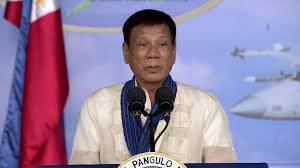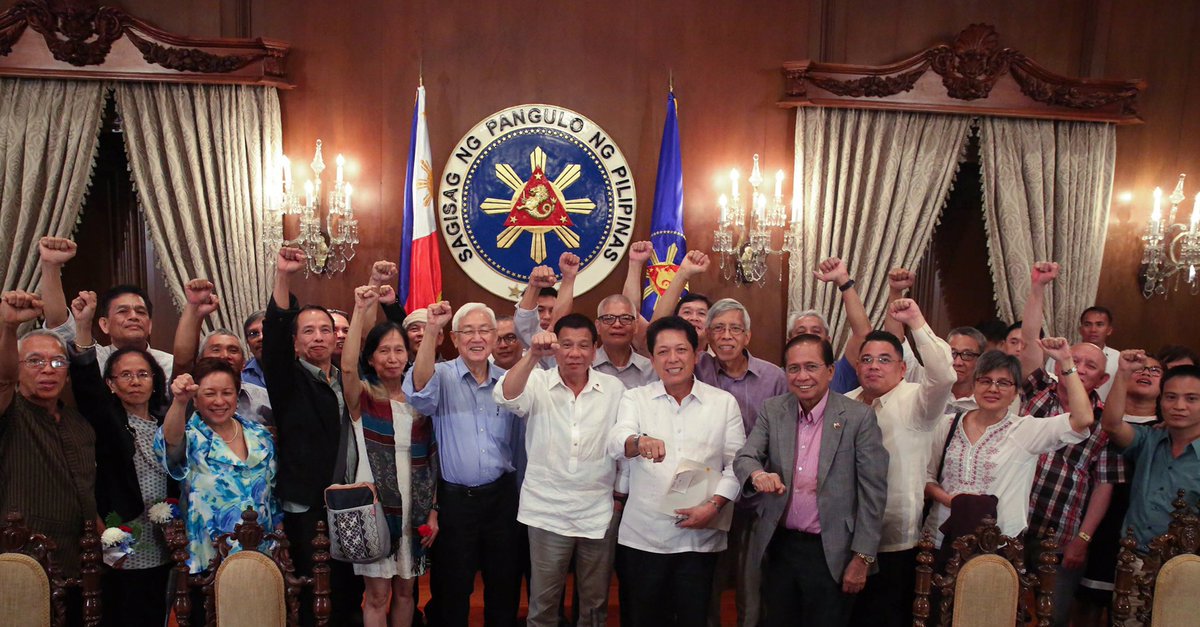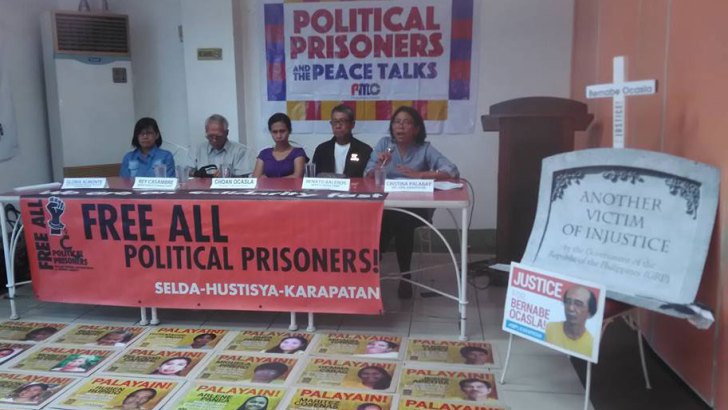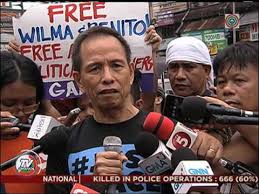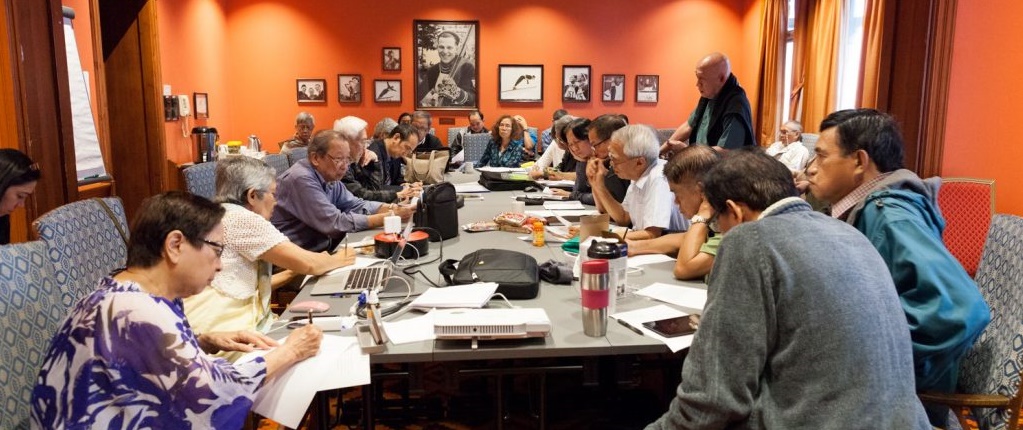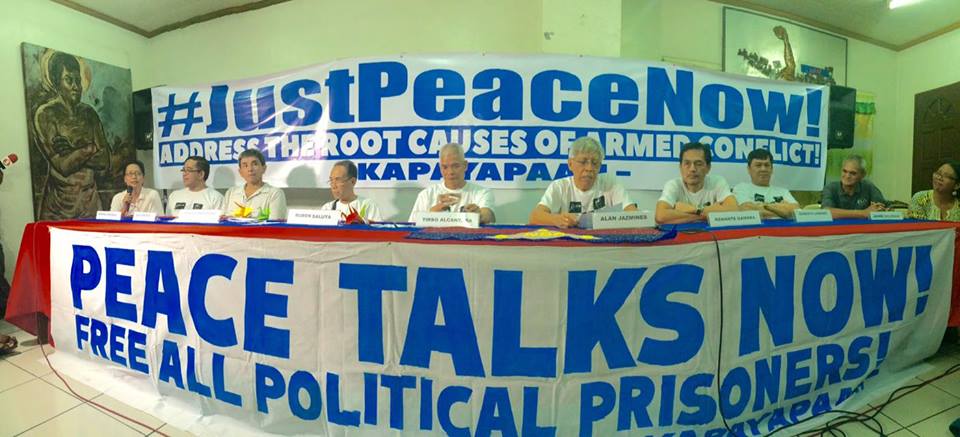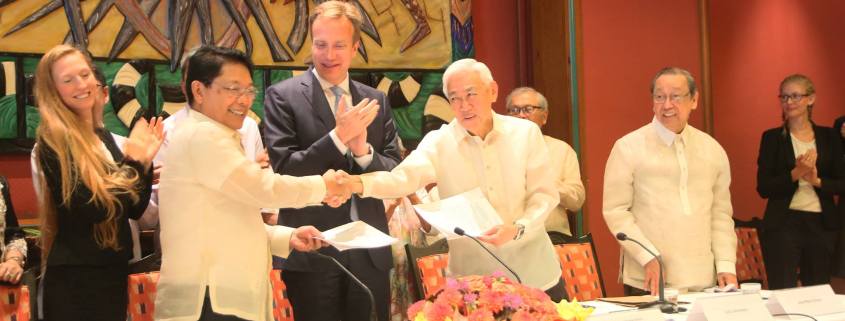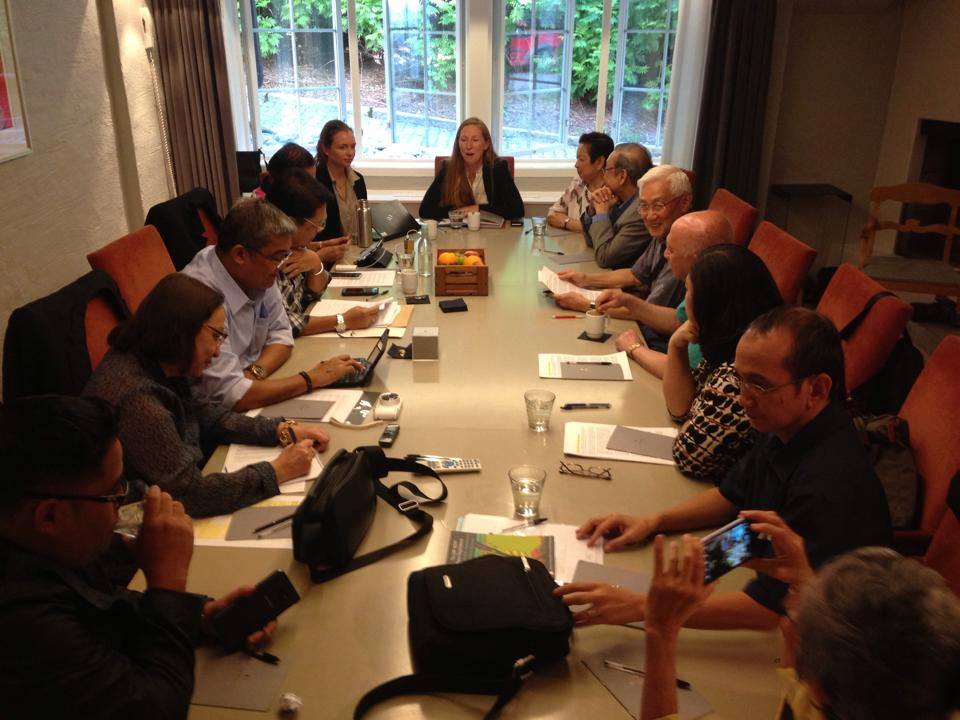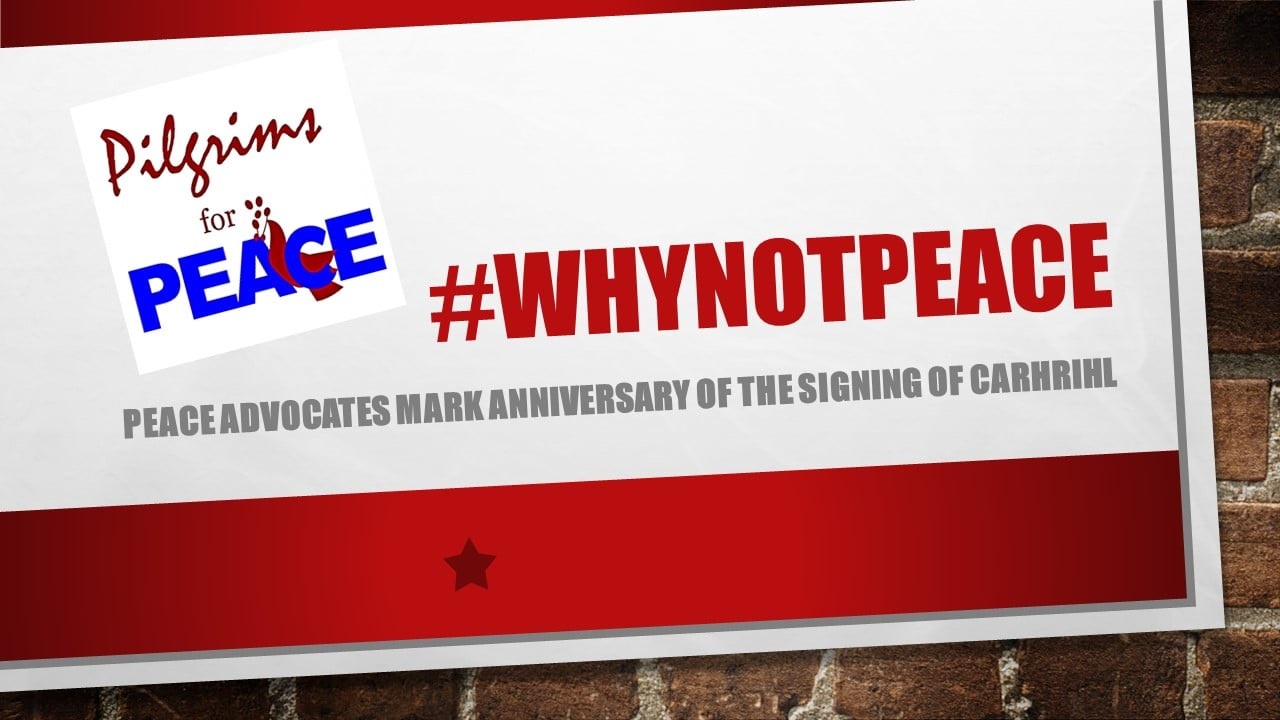 Peace Advocates Mark Anniversary of the Signing of CARHRIHL
Peace Advocates Mark Anniversary of the Signing of CARHRIHL
Pilgrims for Peace
Press Statement
16 March 2021
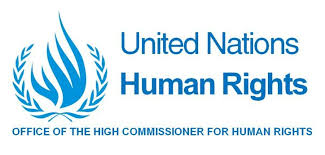 UN rights office calls for independent probe into killings of human rights defenders in PH
UN rights office calls for independent probe into killings of human rights defenders in PH
August 21, 2020 9:53 PM PHT
Michelle Abad – Rappler.com
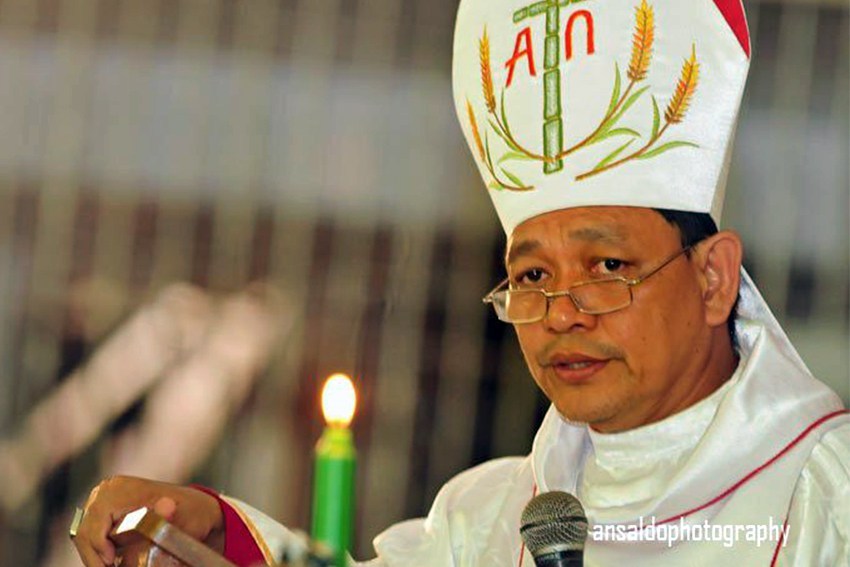 A Statement on the President’s SONA
A Statement on the President’s SONA
Bishop Felixberto Calang
Convenor, Sowing the Seeds of Peace
July 27, 2020
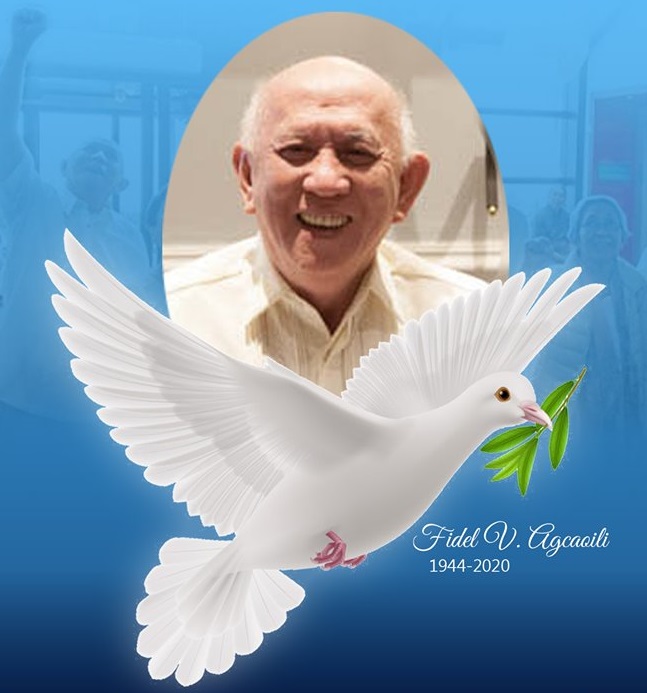 Rest in Power, Fidel Agcaoili (1944-2020)
Rest in Power, Fidel Agcaoili (1944-2020)
Philippine Ecumenical Peace Platform
July 24, 2020
 FIDEL AGCAOILI, PEACEMAKER
FIDEL AGCAOILI, PEACEMAKER
By Tonyo Cruz
MANILA BULLETIN
July 25, 2020
 Church leaders join mounting legal opposition vs. terror law
Church leaders join mounting legal opposition vs. terror law
Janess Ann J. Ellao
Bulatlat.com
July 24, 2020
 Duterte’s anti-terror law a dark new chapter for Philippines, experts warn
Duterte’s anti-terror law a dark new chapter for Philippines, experts warn
The Guardian
Rebecca Ratcliffe – South-east Asia correspondent
Thu 9 Jul 2020 06.48 BST
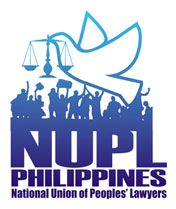 THE ANTI-TERRORISM BILL ERODES HUMAN RIGHTS, INSTITUTIONALIZES IMPUNITY
THE ANTI-TERRORISM BILL ERODES HUMAN RIGHTS, INSTITUTIONALIZES IMPUNITY
National Union of Peoples’ Lawyers
June 1, 2020
 HOUSE RAILROADING OF BOGUS ANTI-TERROR BILL BRINGS US TO THE BRINK OF MARCOSIAN DICTATORSHIP
HOUSE RAILROADING OF BOGUS ANTI-TERROR BILL BRINGS US TO THE BRINK OF MARCOSIAN DICTATORSHIP
By the Movement Against Tyranny
May 30, 2020
 #NoLockdownOnRights – The relevance of UN mechanisms amidst the pandemic: the Philippine context
#NoLockdownOnRights – The relevance of UN mechanisms amidst the pandemic: the Philippine context
ECUVOICE PHILIPPINES
29 May 2020
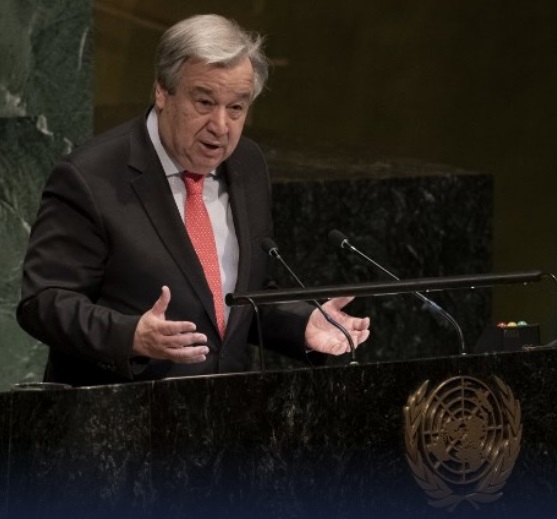 Using pandemic to erode human rights is ‘unacceptable’ – U.N. chief
Using pandemic to erode human rights is ‘unacceptable’ – U.N. chief
April 23, 2020 Agence France-Presse
Guillaume Lavallée
 Lockdown and the pandemic are not government “passes” for rights violations
Lockdown and the pandemic are not government “passes” for rights violations
NUPL PRESS STATEMENT
21 APRIL 2020
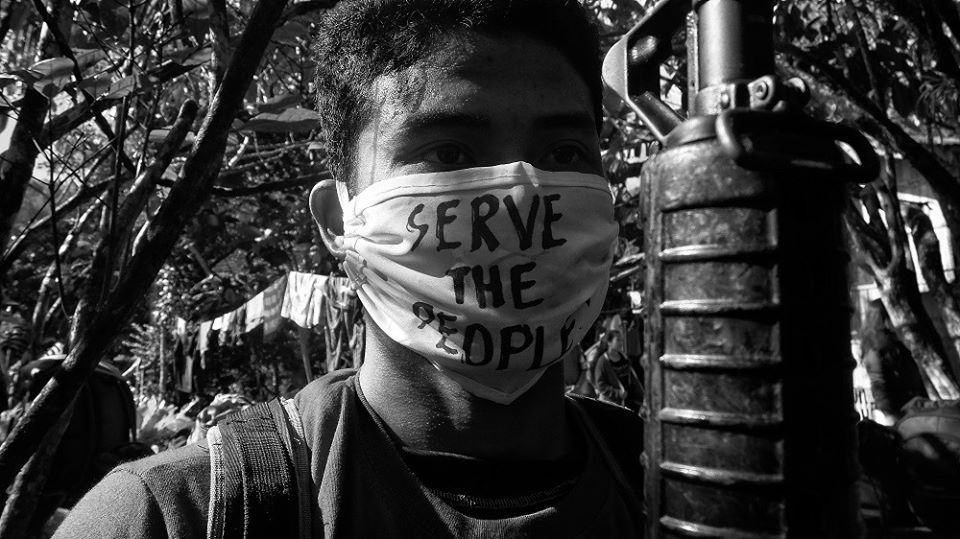 CPP extends truce order despite complaints of GRP ceasefire violations
CPP extends truce order despite complaints of GRP ceasefire violations
Kodao Productions
April 16, 2020
 VULNERABILITY BEHIND BARS
VULNERABILITY BEHIND BARS
Andres Bienrico Bisenio
April 15 at 8:31 AM
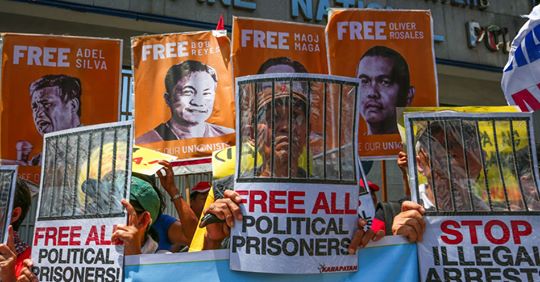 Karapatan welcomes recommendations for release of prisoners, including political prisoners
Karapatan welcomes recommendations for release of prisoners, including political prisoners
Karapatan National Press Release
April 14, 2020
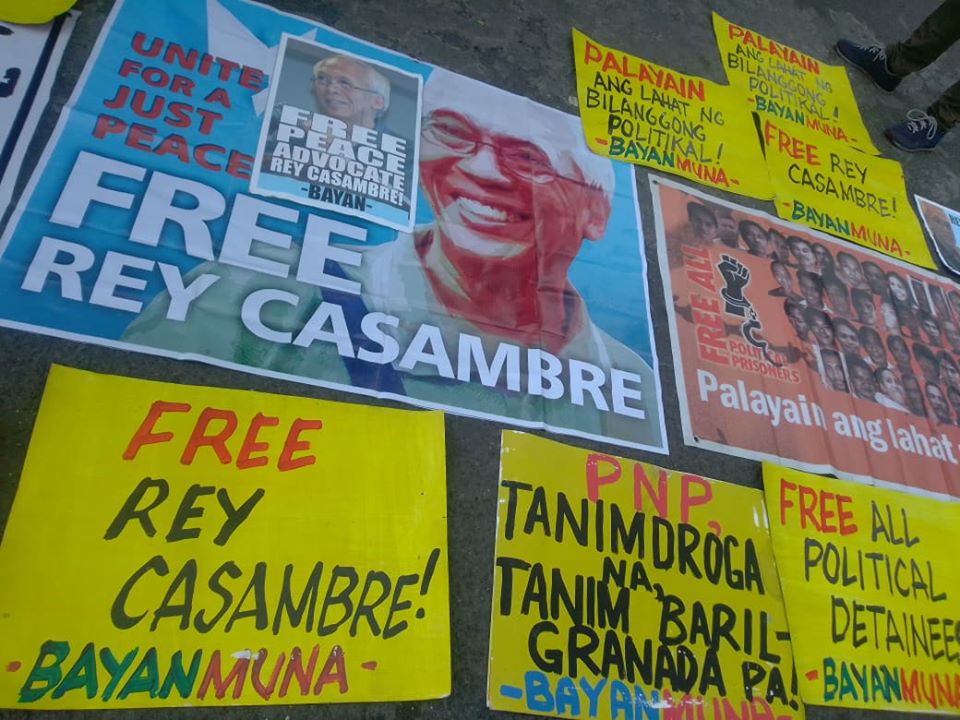 Family asks chief justice to free political detainee and other elderly and sickly prisoners
Family asks chief justice to free political detainee and other elderly and sickly prisoners
Kodao Productions
April 14, 2020
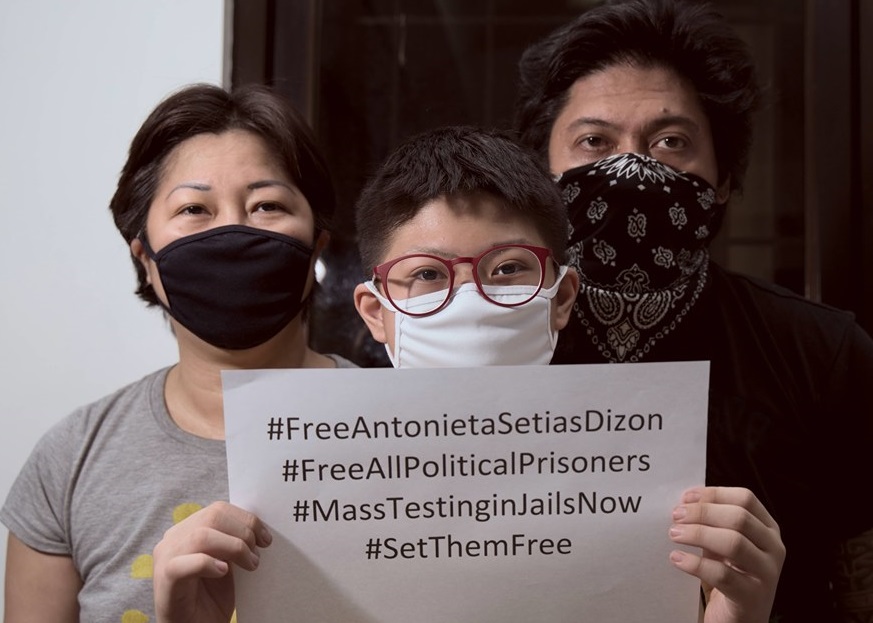 #SetThemFree | Groups support campaign to release prisoners amid COVID-19 pandemic
#SetThemFree | Groups support campaign to release prisoners amid COVID-19 pandemic
By ANNE MARXZE D. UMIL
Bulatlat.com April 1, 2020
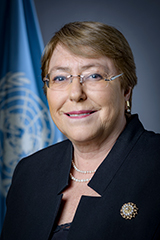 Urgent action needed to prevent COVID-19 in detention facilities – UN Human Rights
Urgent action needed to prevent COVID-19 in detention facilities – UN Human Rights
By MENCHANI TILENDO
Bulatlat.com
March 26, 2020
 “Let Peace Serve the Healing” – A Statement on the Ceasefire Declarations of the GRP and the NDFP
“Let Peace Serve the Healing” – A Statement on the Ceasefire Declarations of the GRP and the NDFP
Philippine Ecumenical Peace Platform (PEPP)
March 26, 2020
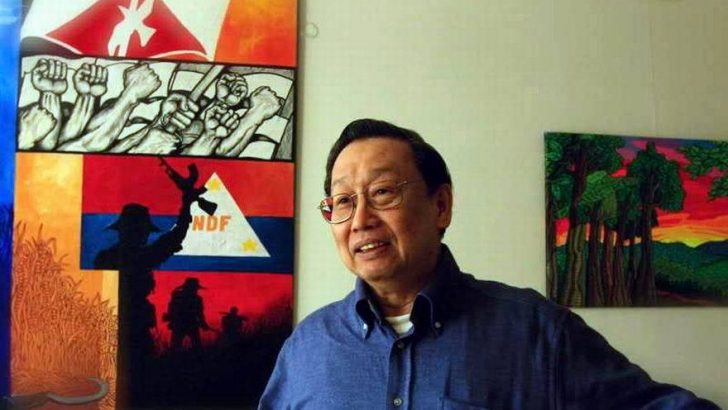 Reds say no basis yet to reciprocate government’s unilateral ceasefire
Reds say no basis yet to reciprocate government’s unilateral ceasefire
By RAYMUND B. VILLANUEVA
Kodao Productions / Bulatlat.com
March 19, 2020
 Release of elderly, sickly prisoners urged amid COVID 19
Release of elderly, sickly prisoners urged amid COVID 19
By MARLO MADRIGAL
Bulatlat.com
Mar 12 2020
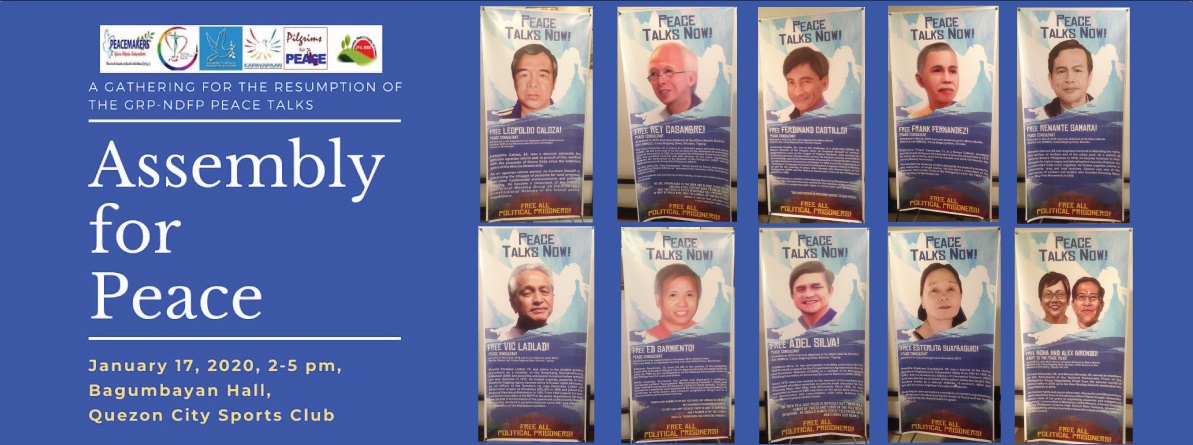 Mensahe ng mga Nakapiit na Consultant ng NDFP sa Assembly for Peace
Mensahe ng mga Nakapiit na Consultant ng NDFP sa Assembly for Peace
Kapatid – Families and Friends of Political Prisoners
January 17, 2020
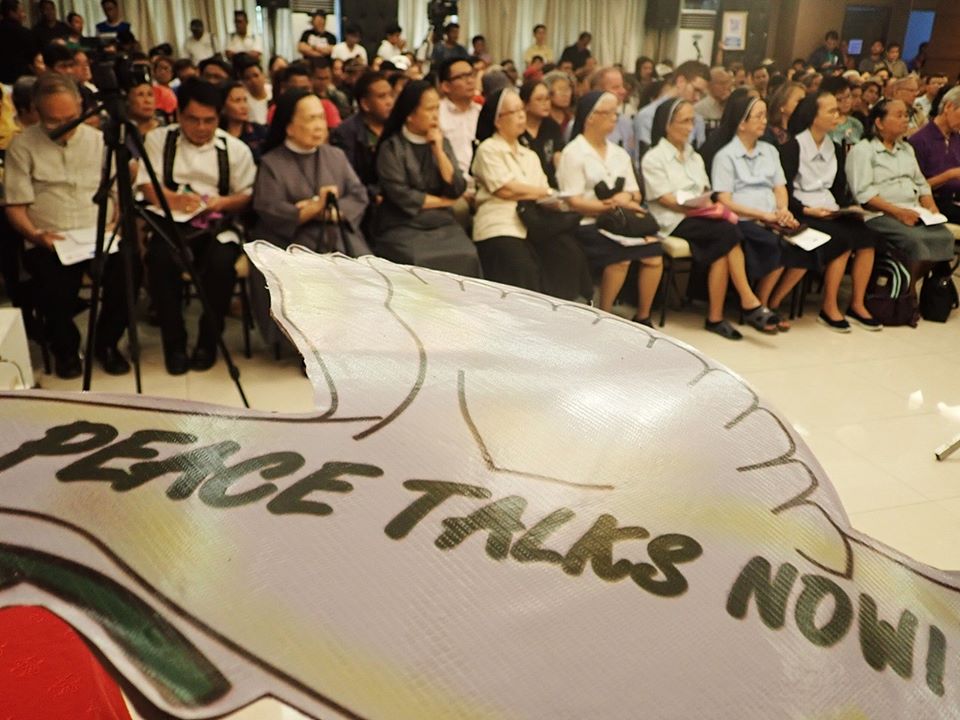 AN URGENT CALL FOR PEACE
AN URGENT CALL FOR PEACE
Assembly for Peace
JANUARY 17, 2020
 GPH-NDFP Peace Negotiators’ Joint Statement on Ceasefire December 21, 2019
GPH-NDFP Peace Negotiators’ Joint Statement on Ceasefire December 21, 2019
 OUR RESPONSE TO THESE VERY CHALLENGING TIMES – A MESSAGE TO THE PEPP Rey Claro Casambre Philippine Peace Center December 4, 2019
OUR RESPONSE TO THESE VERY CHALLENGING TIMES – A MESSAGE TO THE PEPP Rey Claro Casambre Philippine Peace Center December 4, 2019
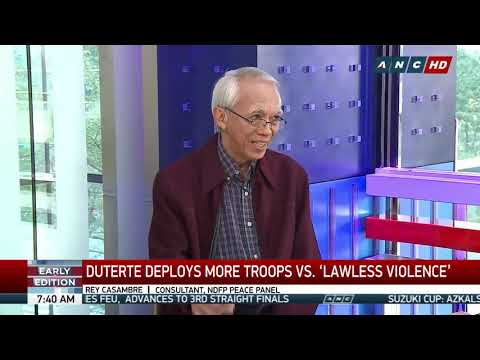 Peace Consultant: Memo Order 32 should be challenged in court ABS-CBN News Channel with Christian V. Esguerra August 2, 2019
Peace Consultant: Memo Order 32 should be challenged in court ABS-CBN News Channel with Christian V. Esguerra August 2, 2019
 MESSAGE FROM UNJUSTLY DETAINED PEACE CONSULTANT REY CLARO CASAMBRE Philippine Peace Center 7 January 2019
MESSAGE FROM UNJUSTLY DETAINED PEACE CONSULTANT REY CLARO CASAMBRE Philippine Peace Center 7 January 2019
 Peace spoilers block crucial talks; but provoke greater clamor for genuine peace Rey Casambre – Philippine Peace Center December 29, 2018
Peace spoilers block crucial talks; but provoke greater clamor for genuine peace Rey Casambre – Philippine Peace Center December 29, 2018
 Gov’t urged to resume peace talks with Reds Jeannette I. Andrade, Marlon Ramos Philippine Daily Inquirer 05:35 AM December 10, 2018
Gov’t urged to resume peace talks with Reds Jeannette I. Andrade, Marlon Ramos Philippine Daily Inquirer 05:35 AM December 10, 2018
 Arrest of peace worker dooms talks with Reds Delfin T. Mallari Jr. Philippine Daily Inquirer 07:26 AM December 09, 2018
Arrest of peace worker dooms talks with Reds Delfin T. Mallari Jr. Philippine Daily Inquirer 07:26 AM December 09, 2018
 ‘Reign of terror’: Peace advocate, wife arrested Delfin T. Mallari Jr., Maricar Cinco Philippine Daily Inquirer 07:03 AM December 08, 2018
‘Reign of terror’: Peace advocate, wife arrested Delfin T. Mallari Jr., Maricar Cinco Philippine Daily Inquirer 07:03 AM December 08, 2018
 Free the Casambres! Free all political prisoners! Submitted on Sat, 12/08/2018 – 12:10
Free the Casambres! Free all political prisoners! Submitted on Sat, 12/08/2018 – 12:10
 FREE REY AND CORA CASAMBRE! HANDS OFF PEACE ADVOCATES! Statement of AGHAM (Advocates of Science and Technology for the People) December 8,2018
FREE REY AND CORA CASAMBRE! HANDS OFF PEACE ADVOCATES! Statement of AGHAM (Advocates of Science and Technology for the People) December 8,2018
 PPC Executive Director Rey Casambre and Wife Arrested! Free The Casambre Couple! Philippine Peace Center 7 December 2018
PPC Executive Director Rey Casambre and Wife Arrested! Free The Casambre Couple! Philippine Peace Center 7 December 2018
 A BLEAK TIME FOR PEACE Pilgrims for Peace Press Release 7 December 2018
A BLEAK TIME FOR PEACE Pilgrims for Peace Press Release 7 December 2018
 Rights advocates slam arrest of peace consultant, wife
Rights advocates slam arrest of peace consultant, wife
Ronalyn V. Olea – Bulatlat
December 7, 2018
 Free the Talaingod 74!
Free the Talaingod 74!
Rural Missionaries of the Philippines
November 29, 2018
 Duterte officials, NDF consultants to hold ‘informal chat’ next week
Duterte officials, NDF consultants to hold ‘informal chat’ next week
UNTV News and Rescue
Posted on Monday, November 19th, 2018
 “Discerning and Acting for Peace”
“Discerning and Acting for Peace”
Statement of the 7thEcumenical Church Leaders’ Summit on Peace
November 7-9, 2018, Cebu City
 NDFP condemns Ladlad’s arrest, demands his immediate release
NDFP condemns Ladlad’s arrest, demands his immediate release
Kodao Productions
November 9, 2018
 ‘RED OCTOBER’ OUSTER PLOT IS A BIG LIE
‘RED OCTOBER’ OUSTER PLOT IS A BIG LIE
Philippine Peace Center Press
Statement 26 September 2018
 On conspiracy tales vs. the resumption of peace talks
On conspiracy tales vs. the resumption of peace talks
EcuVoice Philippines Press Statement
September 25, 2018
 Interview with NDFP Peace Consultant Rey Claro Casambre on the Unilateral Postponement by the GRP of the Peace Talks
Interview with NDFP Peace Consultant Rey Claro Casambre on the Unilateral Postponement by the GRP of the Peace Talks
THE SOURCE on CNN
July 4, 2018
 GRP PRECONDITIONS POISON PEACE NEGOTIATIONS
GRP PRECONDITIONS POISON PEACE NEGOTIATIONS
Press Statement
5 July 2018
 NDFP could no longer negotiate with Duterte regime—Sison
NDFP could no longer negotiate with Duterte regime—Sison
Kodao Productions
28 June 2018
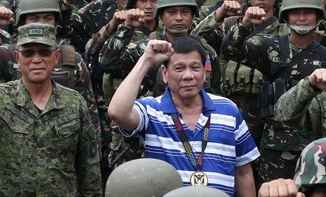 HAS PRESIDENT DUTERTE CHOSEN TO GIVE ALL-OUT WAR ANOTHER CHANCE (AD NAUSEAM) TO SUCCEED?
HAS PRESIDENT DUTERTE CHOSEN TO GIVE ALL-OUT WAR ANOTHER CHANCE (AD NAUSEAM) TO SUCCEED?
Philippine Peace Center – Press Statement
19 June 2018
 Peace consultant Rey Casambre talks about the postponement by Pres. Duterte of the resumption of the forthcoming GPH-NDFP peace talks
Peace consultant Rey Casambre talks about the postponement by Pres. Duterte of the resumption of the forthcoming GPH-NDFP peace talks
ABS-CBN News Channel with Christian V. Esguerra
Posted in Jun 15 2018
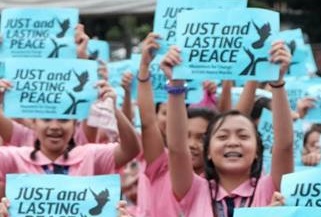 GOVERNMENT POSTPONEMENT OF PEACE TALKS IRRATIONAL, UNJUSTIABLE
GOVERNMENT POSTPONEMENT OF PEACE TALKS IRRATIONAL, UNJUSTIABLE
Kapayapaan Press Statement
15 June 2018
 Joma hits Duterte postponement of peace talks
Joma hits Duterte postponement of peace talks
Christian V. Esguerra, ABS-CBN News
Posted at Jun 14 2018 07:40 PM
 Karapatan to AFP: Stop attacks vs communities, stop sabotaging the GRP-NDFP peace talks
Karapatan to AFP: Stop attacks vs communities, stop sabotaging the GRP-NDFP peace talks
PUBLIC INFORMATION DESK publicinfo@karapatan.org
PRESS RELEASE | June 9, 2018
 STATEMENT ON POSITIVE DEVELOPMENTS IN THE GRP-NDFP PEACE NEGOTIATIONS
STATEMENT ON POSITIVE DEVELOPMENTS IN THE GRP-NDFP PEACE NEGOTIATIONS
Kapayapaan Campaign for a Just and Lasting Peace
Press Statement May 23, 2018
 ECP Bishops to DoJ Secretary: do the right thing, withdraw terrorist list and continue peace talks
ECP Bishops to DoJ Secretary: do the right thing, withdraw terrorist list and continue peace talks
MEDIA RELEASE May 18, 2018
 PEACE CONSULTANT TALKS ON THE PROSPECTS OF RESUMPTION OF THE GRP-NDFP PEACE TALKS
PEACE CONSULTANT TALKS ON THE PROSPECTS OF RESUMPTION OF THE GRP-NDFP PEACE TALKS
ANC News Channel
April 23, 2018
 Resumption of peace talks with Reds backed
Resumption of peace talks with Reds backed
By: Tina G. Santos – Reporter, Philippine Daily Inquirer
April 09, 2018
 NDFP welcomes Duterte’s statement to resume talks
NDFP welcomes Duterte’s statement to resume talks
Kodao Productions
April 4, 2018
 For talks to revive, both House chambers should cooperate, Joma says
For talks to revive, both House chambers should cooperate, Joma says
DAVAO TODAY
Mar. 29, 2018
 Solons slam Lorenzana’s anti-peace talks stance
Solons slam Lorenzana’s anti-peace talks stance
DAVAO TODAY
Mar. 28, 2018
 More than 60 lawmakers urge Duterte to resume peace talks
More than 60 lawmakers urge Duterte to resume peace talks
By ERWIN COLCOL, GMA News
Published March 25, 2018 10:03am
 ISULONG ANG CASER! ITULOY ANG USAPANG PANGKAPAYAPAAN!
ISULONG ANG CASER! ITULOY ANG USAPANG PANGKAPAYAPAAN!
PRIVILEGE SPEECH ni Rep. Carlos Isagani T. Zarate
Lunes, 12 Pebrero 2018
 PEACE CONSULTANT TALKS ON THE ENDING OF PEACE TALKS AND ARRESTS OF NDFP CONSULTANTS
PEACE CONSULTANT TALKS ON THE ENDING OF PEACE TALKS AND ARRESTS OF NDFP CONSULTANTS
ANC News Channel
February 5, 2018
 Church dialog group finds peace talks termination, terrorist tag ‘tragic’ Calls for peace talks resumption, Christmas ceasefire By Manila Today Staff Dec 9, 2017
Church dialog group finds peace talks termination, terrorist tag ‘tragic’ Calls for peace talks resumption, Christmas ceasefire By Manila Today Staff Dec 9, 2017
 Peace advocates urge Duterte to return to the negotiating table Kodao Productions November 28, 2017
Peace advocates urge Duterte to return to the negotiating table Kodao Productions November 28, 2017
 Filipino church leaders warn of violence as peace talks fail Joe Torres – UCA News November 24, 2017
Filipino church leaders warn of violence as peace talks fail Joe Torres – UCA News November 24, 2017
 Peace advocates lament cancellation of peace talks By RONALYN V. OLEA – Bulatlat November 23, 2017
Peace advocates lament cancellation of peace talks By RONALYN V. OLEA – Bulatlat November 23, 2017
 Duterte regime going against clamor for just peace—NDFP Kodao Productions November 22, 2017
Duterte regime going against clamor for just peace—NDFP Kodao Productions November 22, 2017
 Bayan tells Duterte: Got problem with NPA? Resume peace talks MART D. SAMBALUD – Davao Today Nov. 19, 2017
Bayan tells Duterte: Got problem with NPA? Resume peace talks MART D. SAMBALUD – Davao Today Nov. 19, 2017
 Bishop stands with CPP on localized talks: resume peace negotiations instead JIGGER J. JERUSALEM – Davao Today Nov. 06, 2017
Bishop stands with CPP on localized talks: resume peace negotiations instead JIGGER J. JERUSALEM – Davao Today Nov. 06, 2017
 CPP, NDF reject localized peace talks, says Duterte is ‘wasting time’ Zea Io Ming C. Capistrano – Davao Today Nov. 04, 2017
CPP, NDF reject localized peace talks, says Duterte is ‘wasting time’ Zea Io Ming C. Capistrano – Davao Today Nov. 04, 2017
 Reds ask Duterte to drop ‘untenable’ demands, focus on roots of conflict Inday Espina Varona, ABS-CBN News Posted at Oct 25 2017 08:59 AM
Reds ask Duterte to drop ‘untenable’ demands, focus on roots of conflict Inday Espina Varona, ABS-CBN News Posted at Oct 25 2017 08:59 AM
 NDFP to Duterte on talks resumption: ‘We have always been open’ Kodao Productions October 21, 2017
NDFP to Duterte on talks resumption: ‘We have always been open’ Kodao Productions October 21, 2017
 End war with social and economic reforms, Duterte urged Kodao Productions September 28, 2017
End war with social and economic reforms, Duterte urged Kodao Productions September 28, 2017
 Peace advocates celebrate peace talks framework agreement, push for just peace By Manila Today Staff Sep 3, 2017
Peace advocates celebrate peace talks framework agreement, push for just peace By Manila Today Staff Sep 3, 2017
 Christian leaders call for renewed talks with rebels ucanews.com reporter Manila, Philippines August 14, 2017
Christian leaders call for renewed talks with rebels ucanews.com reporter Manila, Philippines August 14, 2017
 A joint statement on peace in the Philippines National Council of Churches in the Philippines National Council of the Churches of Christ in the USA August 8, 2017
A joint statement on peace in the Philippines National Council of Churches in the Philippines National Council of the Churches of Christ in the USA August 8, 2017
 Mindanao bishop hopeful of resumption of talks between gov’t, Reds JIGGER J. JERUSALEM – DavaoToday.com July 31, 2017
Mindanao bishop hopeful of resumption of talks between gov’t, Reds JIGGER J. JERUSALEM – DavaoToday.com July 31, 2017
 “Peace talks will solve Lumad issues, not martial law” LORIE ANN A. CASCARO – DavaoToday,com Jul. 28, 2017
“Peace talks will solve Lumad issues, not martial law” LORIE ANN A. CASCARO – DavaoToday,com Jul. 28, 2017
 Land distribution, social reforms at stake in terminated GRP-NDFP talks ZEA IO MING C. CAPISTRANO – DavaoToday.com Jul. 26, 2017
Land distribution, social reforms at stake in terminated GRP-NDFP talks ZEA IO MING C. CAPISTRANO – DavaoToday.com Jul. 26, 2017
 Joma Sison: No need for peace talks amid martial law, killings GMA News Online / News Published July 20, 2017 5:31pm
Joma Sison: No need for peace talks amid martial law, killings GMA News Online / News Published July 20, 2017 5:31pm
 No peace nego, no backchannel talks, no end to ML: Duterte-Left alliance further weakens By InterAksyon July 20, 2017
No peace nego, no backchannel talks, no end to ML: Duterte-Left alliance further weakens By InterAksyon July 20, 2017
 Reds say enabling environment for talks is discussing socio-economic reform ZEA IO MING C. CAPISTRANO – Davao Today Jul. 14, 2017
Reds say enabling environment for talks is discussing socio-economic reform ZEA IO MING C. CAPISTRANO – Davao Today Jul. 14, 2017
 Panels may resume talks in August; GRP commits to no offensives vs NPA Kodao Productions / News June 18, 2017
Panels may resume talks in August; GRP commits to no offensives vs NPA Kodao Productions / News June 18, 2017
 National Day of Prayer and Action for Peace and Human Rights UNITY STATEMENT June 12, 2017
National Day of Prayer and Action for Peace and Human Rights UNITY STATEMENT June 12, 2017
 National Democratic Front of the Philippines reaction to the statement of President Rodrio Duterte’s order to arrest NDFP consultants returning from the Netherlands (Video Part 2) Davao Today May 31, 2017
National Democratic Front of the Philippines reaction to the statement of President Rodrio Duterte’s order to arrest NDFP consultants returning from the Netherlands (Video Part 2) Davao Today May 31, 2017
 Reply of NDFP Chief Negotiator Fidel Agcaoili and Chief Political Consultant Professor Jose Maria Sison regarding the Latest Statement of President Duterte on the NDFP Consultants Kodao Philippines May 31, 2017
Reply of NDFP Chief Negotiator Fidel Agcaoili and Chief Political Consultant Professor Jose Maria Sison regarding the Latest Statement of President Duterte on the NDFP Consultants Kodao Philippines May 31, 2017
 Luis Jalandoni interview regarding the May 27 Peace Talks cancellation Video from Kodao Philippines May 27, 2017
Luis Jalandoni interview regarding the May 27 Peace Talks cancellation Video from Kodao Philippines May 27, 2017
 GRP to NDFP: ‘We will not proceed to participate, unless…’ Kodao Productions May 27, 2017
GRP to NDFP: ‘We will not proceed to participate, unless…’ Kodao Productions May 27, 2017
 Martial Law declaration flouts peace processes, rejects lessons of history Statement by Sowing the Seeds of Peace in Mindanao May 25, 2017
Martial Law declaration flouts peace processes, rejects lessons of history Statement by Sowing the Seeds of Peace in Mindanao May 25, 2017
 AUDIO CLIP: Fidel Agcaoili on Joint Interim Ceasefire and CASER Kodao Productions 4/19/2017
AUDIO CLIP: Fidel Agcaoili on Joint Interim Ceasefire and CASER Kodao Productions 4/19/2017
 Five reasons why the current peace talks are ‘unprecedented’ #LETSTALKPEACE – ALTERMIDYA.NET APRIL 8, 2017
Five reasons why the current peace talks are ‘unprecedented’ #LETSTALKPEACE – ALTERMIDYA.NET APRIL 8, 2017
 Joint Statement on the Successful Fourth Round of Formal Talks between the GRP and the NDFP NDFP International Information Office 6 April 2017/in News, Statements / April 6 2017, Noorwijk Aan Zee, The Netherlands
Joint Statement on the Successful Fourth Round of Formal Talks between the GRP and the NDFP NDFP International Information Office 6 April 2017/in News, Statements / April 6 2017, Noorwijk Aan Zee, The Netherlands
 ‘CASER ahead of bilateral ceasefire agreement is wise’–Fidel Agcaoili Kodao Productions April 3, 2017
‘CASER ahead of bilateral ceasefire agreement is wise’–Fidel Agcaoili Kodao Productions April 3, 2017
 Fourth round of GRP-NDFP talks finally opens; ceasefire in the agenda Kodao Productions April 3, 2017
Fourth round of GRP-NDFP talks finally opens; ceasefire in the agenda Kodao Productions April 3, 2017
 ‘Unexpected departure,’ NDFP says of GRP’s no ceasefire announcement Kodao Productions April 1, 2017
‘Unexpected departure,’ NDFP says of GRP’s no ceasefire announcement Kodao Productions April 1, 2017
 Militant solon tells farmers: ‘Rally behind CASER, free distribution of land’ MART D. SAMBALUD – DAVAO TODAY Mar. 27, 2017
Militant solon tells farmers: ‘Rally behind CASER, free distribution of land’ MART D. SAMBALUD – DAVAO TODAY Mar. 27, 2017
 Reds to declare ceasefire before 4th round of GRP-NDFP peace talks DAVAO TODAY Mar. 25, 2017
Reds to declare ceasefire before 4th round of GRP-NDFP peace talks DAVAO TODAY Mar. 25, 2017
 Peace Consultant Explains Issues on Peace Talks Resumption ANC News Channel March 22, 2017
Peace Consultant Explains Issues on Peace Talks Resumption ANC News Channel March 22, 2017
 NDFP negotiators to leave for Europe for back-channel talks with the GRP Kodao Productions March 9, 2017
NDFP negotiators to leave for Europe for back-channel talks with the GRP Kodao Productions March 9, 2017
 NDFP consultant: Peace talks still on, Duterte admin shows ‘positive signs’ ABS-CBN News Posted at Feb 23 2017 04:28 PM | Updated as of Feb 23 2017 04:49 PM
NDFP consultant: Peace talks still on, Duterte admin shows ‘positive signs’ ABS-CBN News Posted at Feb 23 2017 04:28 PM | Updated as of Feb 23 2017 04:49 PM
 GRP and NDFP assure each other of wanting peace Kodao Productions /news February 21, 2017
GRP and NDFP assure each other of wanting peace Kodao Productions /news February 21, 2017
 House panel approves reso urging Duterte to continue peace talks RAPPLER.COM : Mara Cepeda February 21, 2017
House panel approves reso urging Duterte to continue peace talks RAPPLER.COM : Mara Cepeda February 21, 2017
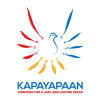 Stand for a Just and Lasting Peace! Let the GPH-NDFP Peace Talks Continue! KAPAYAPAAN Joint Statement February 10, 2017
Stand for a Just and Lasting Peace! Let the GPH-NDFP Peace Talks Continue! KAPAYAPAAN Joint Statement February 10, 2017
 Joma to Rody: Calm down, let’s talk February 10, 2017 Reposted from Kodao Productions
Joma to Rody: Calm down, let’s talk February 10, 2017 Reposted from Kodao Productions
 102 lawmakers urge Duterte to continue peace talks RAPPLER.COM : by Mara Cepeda February 09, 2017
102 lawmakers urge Duterte to continue peace talks RAPPLER.COM : by Mara Cepeda February 09, 2017
 Various groups urge gov’t to continue peace talks with Left ZEA IO MING C. CAPISTRANO Feb. 06, 2017
Various groups urge gov’t to continue peace talks with Left ZEA IO MING C. CAPISTRANO Feb. 06, 2017
 Peace spoilers won the day – Agcaoili Kodao Productions February 7, 2017
Peace spoilers won the day – Agcaoili Kodao Productions February 7, 2017
 GRP terminates JASIG Kodao Productions February 7, 2017
GRP terminates JASIG Kodao Productions February 7, 2017
 Reds: Government had ‘fake ceasefire’ under Duterte Repost from GMA News Online Published February 3, 2017 7:17pm
Reds: Government had ‘fake ceasefire’ under Duterte Repost from GMA News Online Published February 3, 2017 7:17pm
 CPP and NPA terminate ceasefire with GRP Kodao Productions February 1, 2017
CPP and NPA terminate ceasefire with GRP Kodao Productions February 1, 2017
 ‘Difficult but successful’ round of talks ends in Rome Kodao Productions January 26, 2017
‘Difficult but successful’ round of talks ends in Rome Kodao Productions January 26, 2017
 Govt, NDF panels set talks on bilateral cease-fire in Utrecht in February By: InterAksyon.com January 25, 2017 7:34 PM
Govt, NDF panels set talks on bilateral cease-fire in Utrecht in February By: InterAksyon.com January 25, 2017 7:34 PM
 Joma terror delisting, free land distribution among agreements in third round of talks Kodao Productions January 25, 2017
Joma terror delisting, free land distribution among agreements in third round of talks Kodao Productions January 25, 2017
 ‘First achievement of the 3rd round’: Parties sign supplemental guidelines of Joint Monitoring Committee Kodao Productions January 21, 2017
‘First achievement of the 3rd round’: Parties sign supplemental guidelines of Joint Monitoring Committee Kodao Productions January 21, 2017
 Unilateral ceasefire untenable; bilateral ceasefire prospects dim–NDFP Kodao Productions January 18, 2017
Unilateral ceasefire untenable; bilateral ceasefire prospects dim–NDFP Kodao Productions January 18, 2017
 Include drug EJKs in peace talks, church-based group urges govt, Reds By: InterAksyon.com January 17, 2017 10:34 AM
Include drug EJKs in peace talks, church-based group urges govt, Reds By: InterAksyon.com January 17, 2017 10:34 AM
 Bello: President Duterte will honor promise to free all political prisoners By ANTONIO L. COLINA IV – DECEMBER 27, 2016 Reposted from MindaNews
Bello: President Duterte will honor promise to free all political prisoners By ANTONIO L. COLINA IV – DECEMBER 27, 2016 Reposted from MindaNews
 ‘Stop misrepresenting our statements’ – Jalandoni to GRP By: InterAksyon.com December 13, 2016 12:00 PM
‘Stop misrepresenting our statements’ – Jalandoni to GRP By: InterAksyon.com December 13, 2016 12:00 PM
 BINDING ONLY AFTER RELEASE, NDF now willing to sign bilateral truce before political prisoners’ release Repost from GMA News Online By ERWIN COLCOL, GMA News December 10, 2016 9:39pm
BINDING ONLY AFTER RELEASE, NDF now willing to sign bilateral truce before political prisoners’ release Repost from GMA News Online By ERWIN COLCOL, GMA News December 10, 2016 9:39pm
 Sison: CPP ready to terminate ceasefire if political detainees are not released by January Repost of interview by Raymund B. Villanueva – Kodao Productions December 8, 2016
Sison: CPP ready to terminate ceasefire if political detainees are not released by January Repost of interview by Raymund B. Villanueva – Kodao Productions December 8, 2016
 JV asks JMS: On the First Six Months of the Duterte Presidency and the Continuing Quest for Real Change By J.V. Ayson – Dec 1, 2016 Reposted from www.manilatoday.net
JV asks JMS: On the First Six Months of the Duterte Presidency and the Continuing Quest for Real Change By J.V. Ayson – Dec 1, 2016 Reposted from www.manilatoday.net
9 NDFP Consultants Released for Formal Talks by RONALYN V. OLEA August 17, 2016 Re-posted from Bulatlat
by RONALYN V. OLEA August 17, 2016 Re-posted from Bulatlat
 The Significance of the June 14-15 Preliminary Talks in Oslo Rey Claro Casambre Philippine Peace Center 17 June 2016
The Significance of the June 14-15 Preliminary Talks in Oslo Rey Claro Casambre Philippine Peace Center 17 June 2016
 Prospects for Peace with Duterte Presidency Rey Claro Casambre Philippine Peace Center May 20, 2016
Prospects for Peace with Duterte Presidency Rey Claro Casambre Philippine Peace Center May 20, 2016
 Senator Loren: Resume peace talks with National Democratic Front of the Philippines Posted from Ang Malaya Net – Philippine News Agency September 4, 2015
Senator Loren: Resume peace talks with National Democratic Front of the Philippines Posted from Ang Malaya Net – Philippine News Agency September 4, 2015
 Palace hopes for resumption of peace talks with Reds after Amsterdam meet GMA Network News 12 July 2015
Palace hopes for resumption of peace talks with Reds after Amsterdam meet GMA Network News 12 July 2015
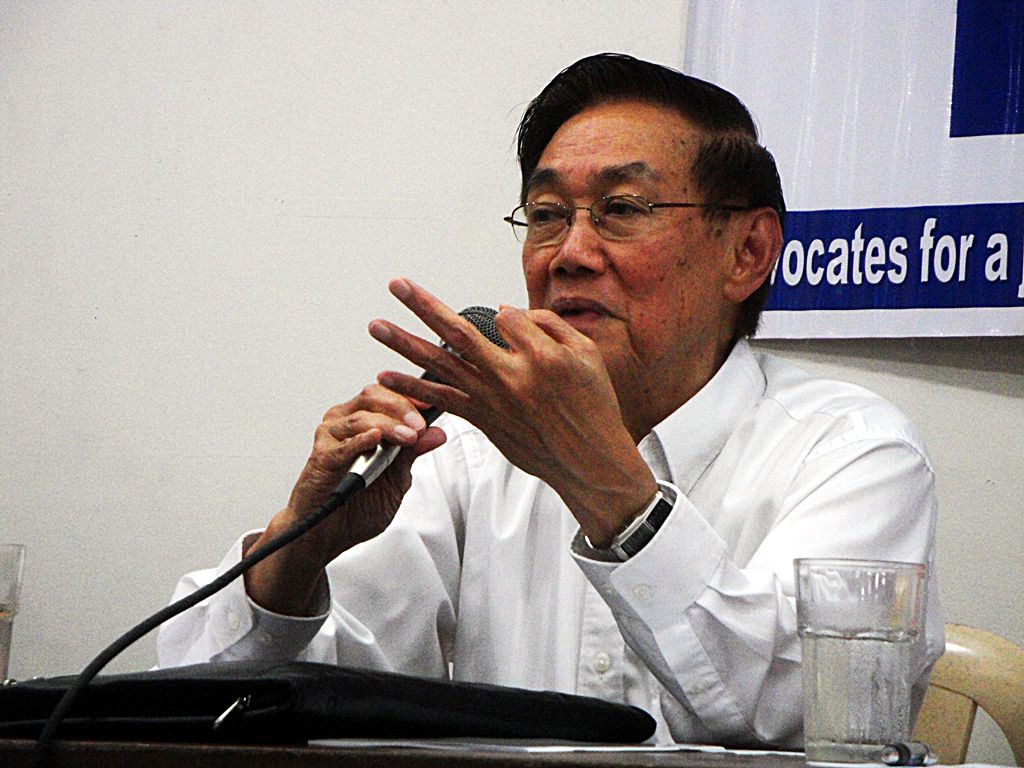 Luis Jalandoni Video Message – some updates on the GPH-NDFP negotiations Rotary InternationaI District 3800, District Training Assembly (DISTAS) April 25, 2015, Saturday, 5:00 pm – 6:30 pm
Luis Jalandoni Video Message – some updates on the GPH-NDFP negotiations Rotary InternationaI District 3800, District Training Assembly (DISTAS) April 25, 2015, Saturday, 5:00 pm – 6:30 pm
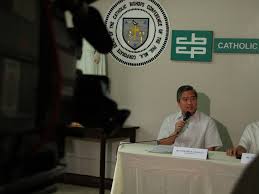 CBCP President’s Statement a Disservice to GPH-NDFP Peace Negotiations Philippine Peace Center Press Statement 16 November 2014
CBCP President’s Statement a Disservice to GPH-NDFP Peace Negotiations Philippine Peace Center Press Statement 16 November 2014
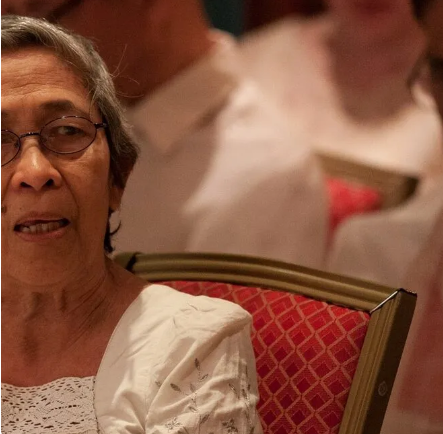 On the ongoing talks
On the ongoing talks NDFP National Council Responds to ATC Resolution No. 21
NDFP National Council Responds to ATC Resolution No. 21 On the ATC Resolution Designating NDF as Terrorist
On the ATC Resolution Designating NDF as Terrorist A Needless Nail on the Coffin of the GRP-NDFP Peace Negotiations
A Needless Nail on the Coffin of the GRP-NDFP Peace Negotiations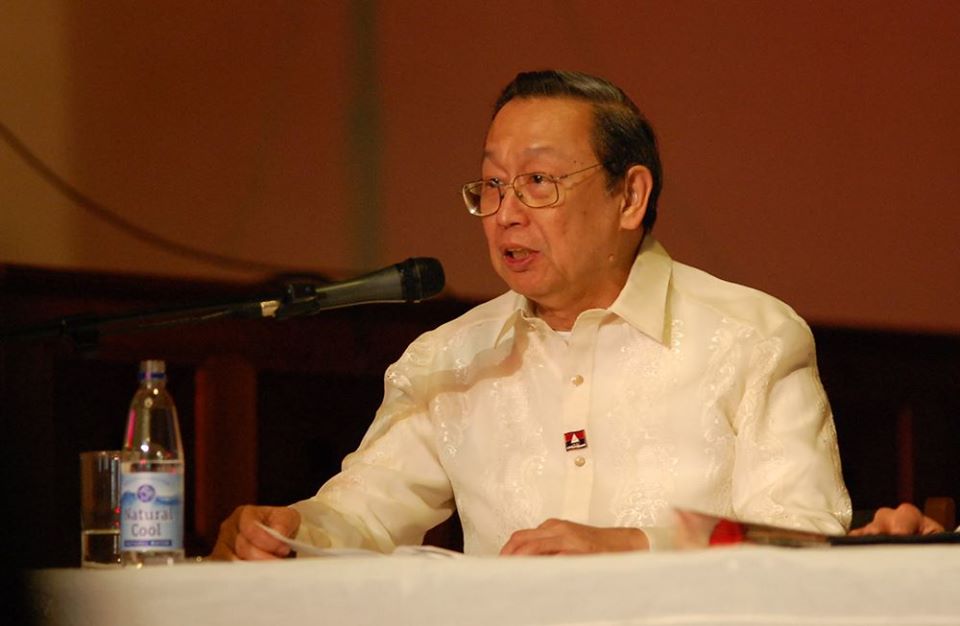 CONDEMNATION OF THE MURDER OF RANDALL ECHANIS
CONDEMNATION OF THE MURDER OF RANDALL ECHANIS NDFP NEGOTIATING PANEL CAN RECOMMEND CEASEFIRE TO ITS PRINCIPAL IN RESPONSE TO THE CALL OF UN SECRETARY GENERAL FOR GLOBAL CEASEFIRE
NDFP NEGOTIATING PANEL CAN RECOMMEND CEASEFIRE TO ITS PRINCIPAL IN RESPONSE TO THE CALL OF UN SECRETARY GENERAL FOR GLOBAL CEASEFIRE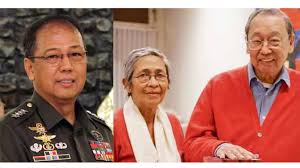 MILITARIST HAWKS SABOTAGE PEACE TALKS AND OPPOSE SOCIAL AND ECONOMIC REFORMS
MILITARIST HAWKS SABOTAGE PEACE TALKS AND OPPOSE SOCIAL AND ECONOMIC REFORMS Duterte regime continues to prevent peace negotiations and wage all-out war against the Filipino people
Duterte regime continues to prevent peace negotiations and wage all-out war against the Filipino people ON THE RESUMPTION OF THE GRP-NDFP PEACE NEGOTIATIONS
ON THE RESUMPTION OF THE GRP-NDFP PEACE NEGOTIATIONS NDFP CONDEMNS ARREST OF CASAMBRE COUPLE
NDFP CONDEMNS ARREST OF CASAMBRE COUPLE SETTING THE RECORD STRAIGHT ON OUR ABORTED TRIP TO THE PHILIPPINES
SETTING THE RECORD STRAIGHT ON OUR ABORTED TRIP TO THE PHILIPPINES NDFP Panel welcomes House Resolution 1803 on resumption of peace talks
NDFP Panel welcomes House Resolution 1803 on resumption of peace talks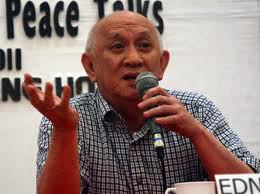 GRP AND NDFP REPRESENTATIVES AGREE TO CONTINUE PEACE NEGOTIATIONS AND TO OVERCOME OBSTACLES AND IMPEDIMENTS
GRP AND NDFP REPRESENTATIVES AGREE TO CONTINUE PEACE NEGOTIATIONS AND TO OVERCOME OBSTACLES AND IMPEDIMENTS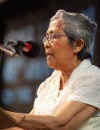 ‘Basic reforms must be the cornerstone of an interim peace agreement’
‘Basic reforms must be the cornerstone of an interim peace agreement’ THREAT OF NATIONWIDE MARTIAL LAW PERSISTS
THREAT OF NATIONWIDE MARTIAL LAW PERSISTS GRP-NDFP Negotations on CASER Is Key to Resolving Armed Conflict
GRP-NDFP Negotations on CASER Is Key to Resolving Armed Conflict ON THE RESUMPTION OF THE GRP-NDFP PEACE NEGOTIATIONS
ON THE RESUMPTION OF THE GRP-NDFP PEACE NEGOTIATIONS On Duterte and His Parrot Roque
On Duterte and His Parrot Roque RESPONSE OF PROF. JOSE MARIA SISON TO OFFER OF PRESIDENT DUTERTE
RESPONSE OF PROF. JOSE MARIA SISON TO OFFER OF PRESIDENT DUTERTE DUTERTE SCHEME OF FASCIST DICTATORSHIP
DUTERTE SCHEME OF FASCIST DICTATORSHIP STATEMENT AGAINST PROCLAMATION 360 & 374 OF THE US-DIRECTED DUTERTE FASCIST REGIME
STATEMENT AGAINST PROCLAMATION 360 & 374 OF THE US-DIRECTED DUTERTE FASCIST REGIME NDFP awaits GRP’s written notice of termination
NDFP awaits GRP’s written notice of termination Duterte blocks progress of discussions on social and economic reforms
Duterte blocks progress of discussions on social and economic reforms GRP unreasonable demands disrupt fifth round of talks
GRP unreasonable demands disrupt fifth round of talks Statement of the NDFP panel on the NPA as a target of martial law
Statement of the NDFP panel on the NPA as a target of martial law NDFP assails growing threats vs consultants, peace talks
NDFP assails growing threats vs consultants, peace talks Utrecht Joint Statement
Utrecht Joint Statement On the Notice of Termination of the JASIG Sent on 07 February 2017 by Sec. Jesus Dureza
On the Notice of Termination of the JASIG Sent on 07 February 2017 by Sec. Jesus Dureza Comprehensive Agreement on Socio-Economic Reforms Draft as of 17-01-12 (exchanged with GRP)
Comprehensive Agreement on Socio-Economic Reforms Draft as of 17-01-12 (exchanged with GRP) NDFP panel tells GRP panel that they could “talk while fighting”
NDFP panel tells GRP panel that they could “talk while fighting” JOINT STATEMENT ON THE SUCCESSFUL THIRD ROUND OF FORMAL TALKS BETWEEN THE GRP AND NDFP IN ROME, ITALY
JOINT STATEMENT ON THE SUCCESSFUL THIRD ROUND OF FORMAL TALKS BETWEEN THE GRP AND NDFP IN ROME, ITALY Closing statement of NDFP Negotiating Panel Chairperson Fidel Agcaoili
Closing statement of NDFP Negotiating Panel Chairperson Fidel Agcaoili NDFP sees finished CASER draft this year
NDFP sees finished CASER draft this year Statement at Opening Ceremonies of Third Round of Talks in Rome
Statement at Opening Ceremonies of Third Round of Talks in Rome Opening Speech For The Third Round of Talks in Rome
Opening Speech For The Third Round of Talks in Rome IN UNITY WITH THE CPP’S CALL FOR PEOPLE’S EXPRESSION OF INDIGNATION OVER DUTERTE’S UNFULFILLED PROMISES IN PEACE NEGOTIATIONS
IN UNITY WITH THE CPP’S CALL FOR PEOPLE’S EXPRESSION OF INDIGNATION OVER DUTERTE’S UNFULFILLED PROMISES IN PEACE NEGOTIATIONS THE PEOPLE SHOULD NOT RELENT IN DEMANDING JUSTICE FOR POLITICAL PRISONERS
THE PEOPLE SHOULD NOT RELENT IN DEMANDING JUSTICE FOR POLITICAL PRISONERS Another death in detention, this time under Duterte regime’s watch
Another death in detention, this time under Duterte regime’s watch TIAMZON SLAMS GRP DISINFORMATION ON BILATERAL CEASEFIRE
TIAMZON SLAMS GRP DISINFORMATION ON BILATERAL CEASEFIRE Second round ends with some progress but uncertainties remain
Second round ends with some progress but uncertainties remain NDFP CONDEMNS ILLEGAL ARREST OF NDFP CONSULTANT MARIA CONCEPCION “CONCHA” ARANETA-BOCALA
NDFP CONDEMNS ILLEGAL ARREST OF NDFP CONSULTANT MARIA CONCEPCION “CONCHA” ARANETA-BOCALA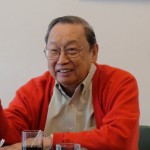 STOP HARASSING AND THREATENING LUIS JALANDONI, CHAIRPERSON OF THE NDFP NEGOTIATING PANEL
STOP HARASSING AND THREATENING LUIS JALANDONI, CHAIRPERSON OF THE NDFP NEGOTIATING PANEL AQUINO LACKS SINCERITY IN THE PEACE NEGOTIATIONS AND HAS WANTONLY VIOLATED EXISTING AGREEMENTS
AQUINO LACKS SINCERITY IN THE PEACE NEGOTIATIONS AND HAS WANTONLY VIOLATED EXISTING AGREEMENTS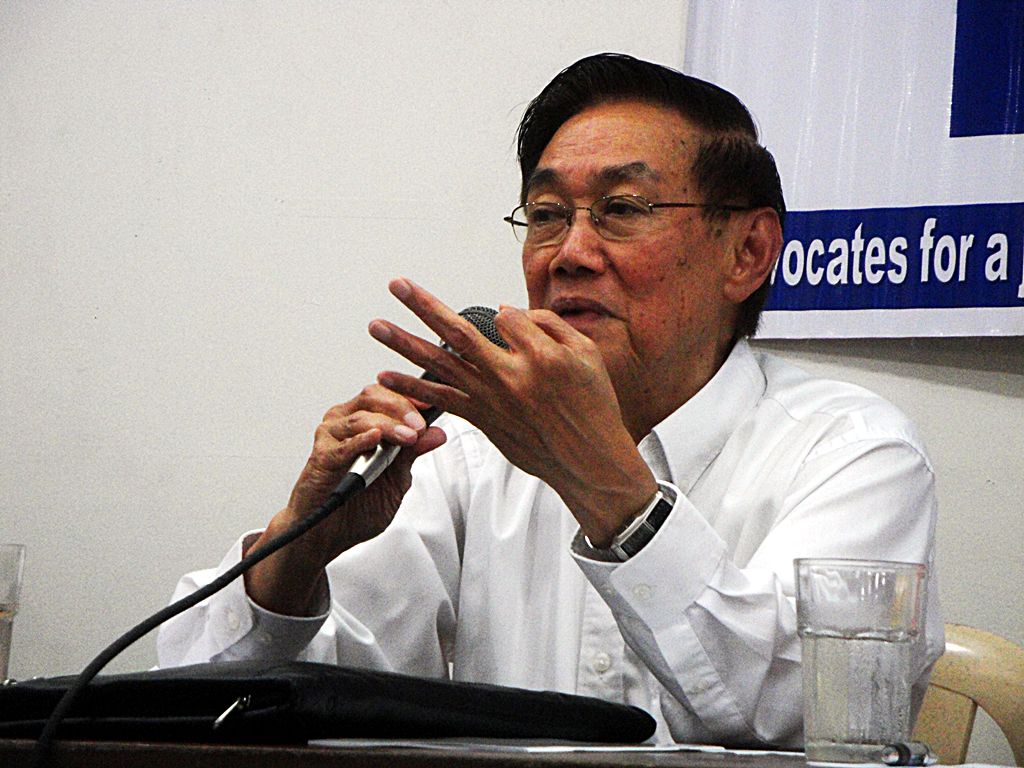 On the CBCP President’s November 10 Message
On the CBCP President’s November 10 Message
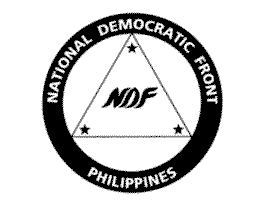
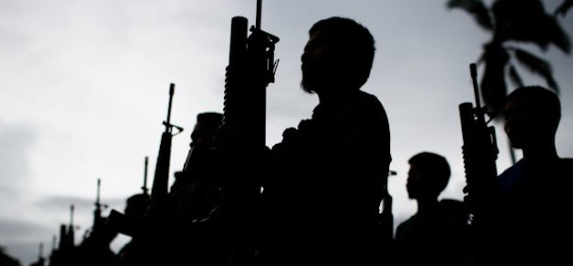
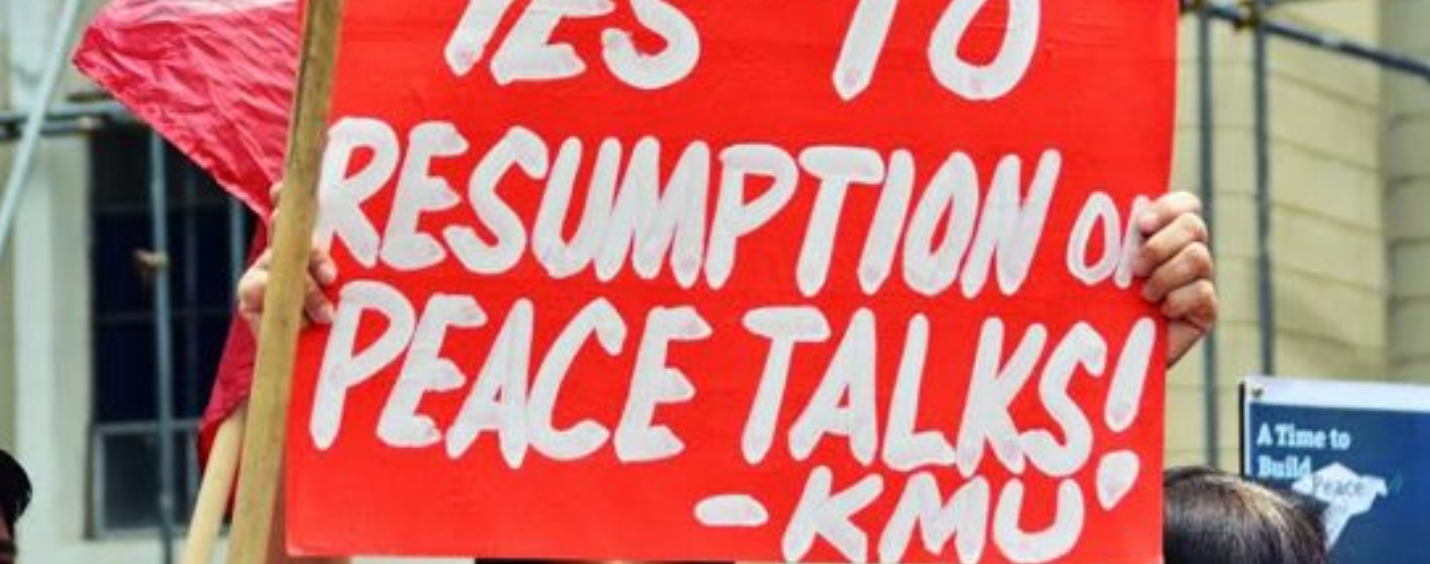



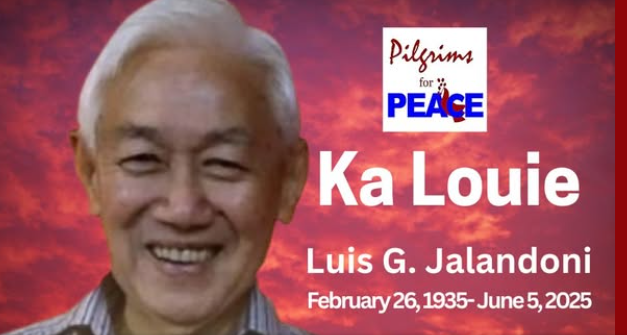
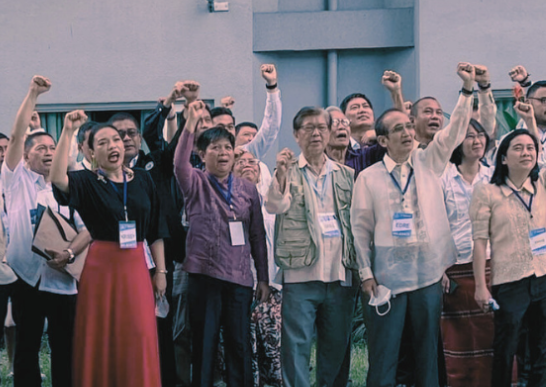
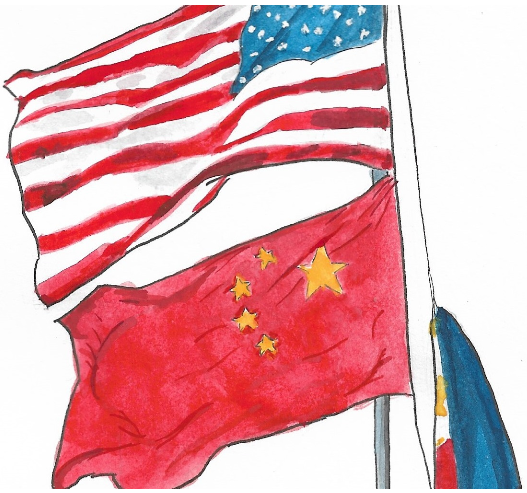
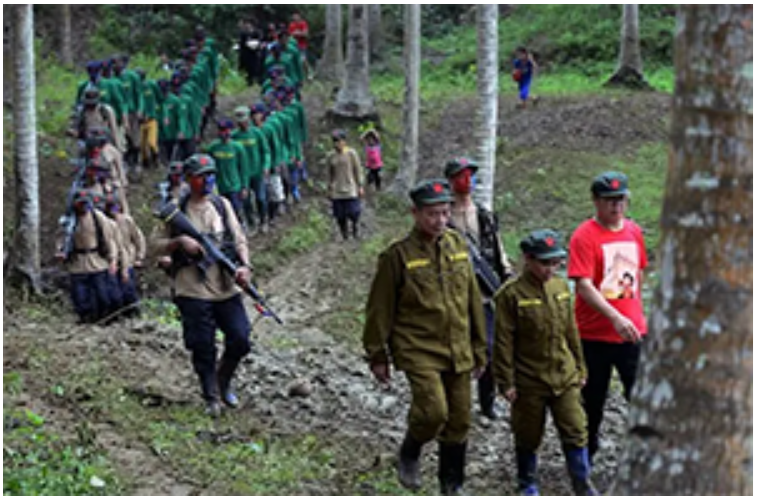
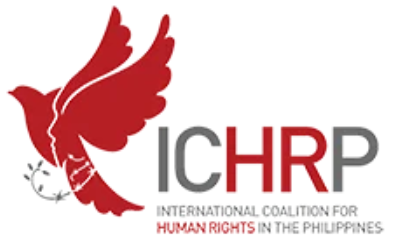
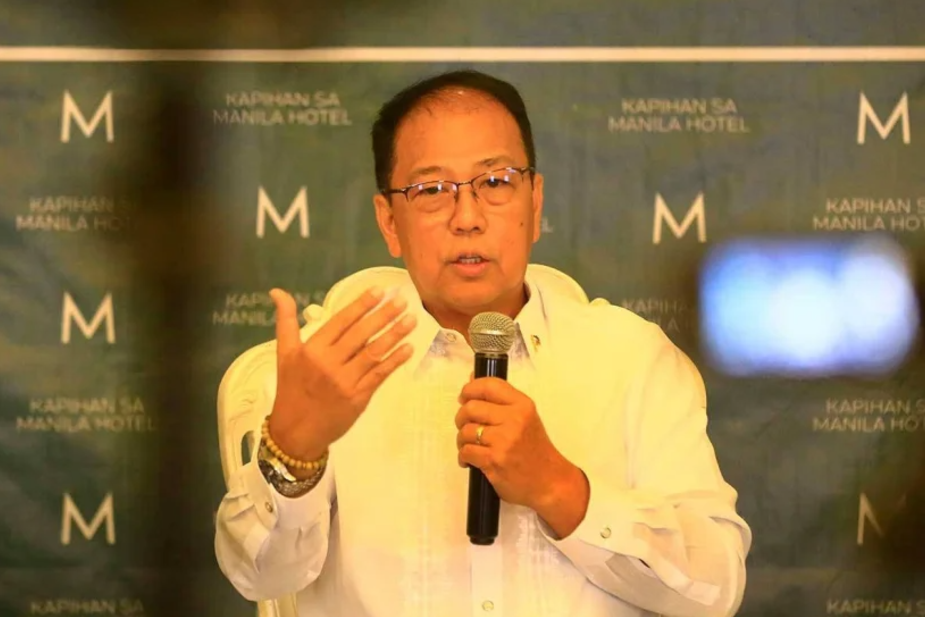
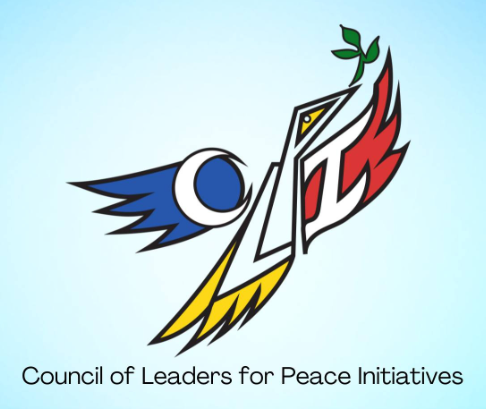
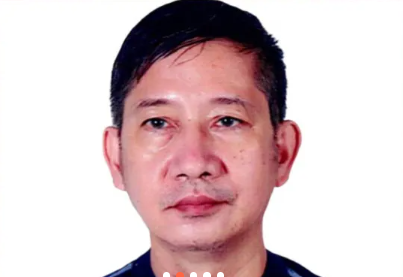
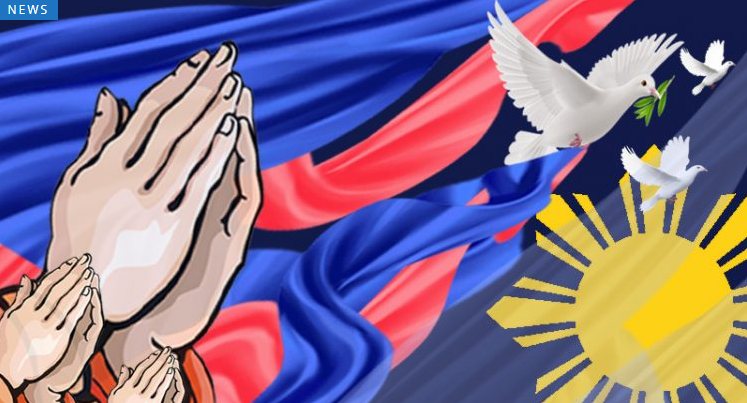
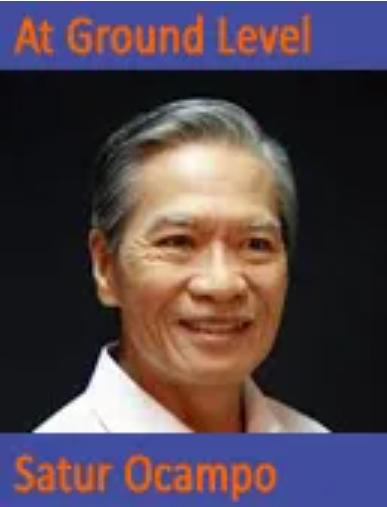
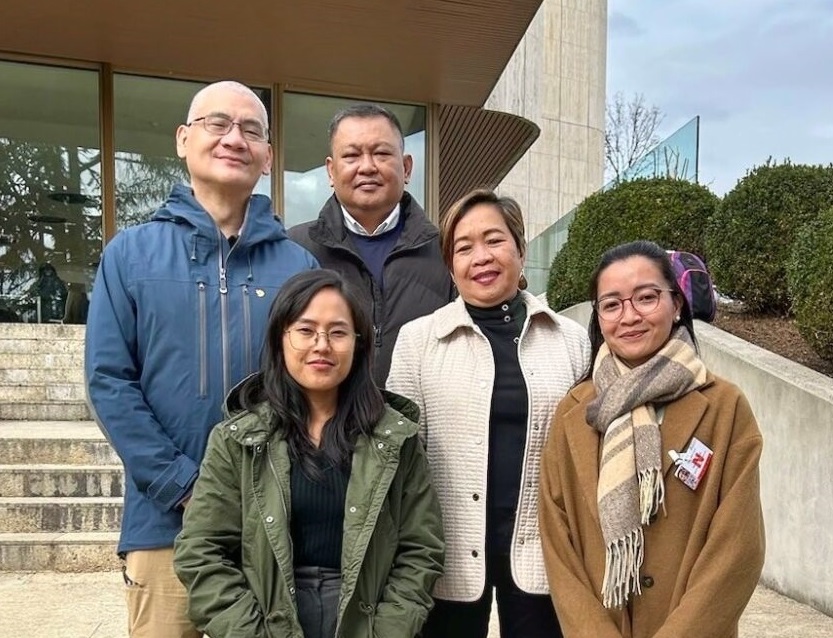


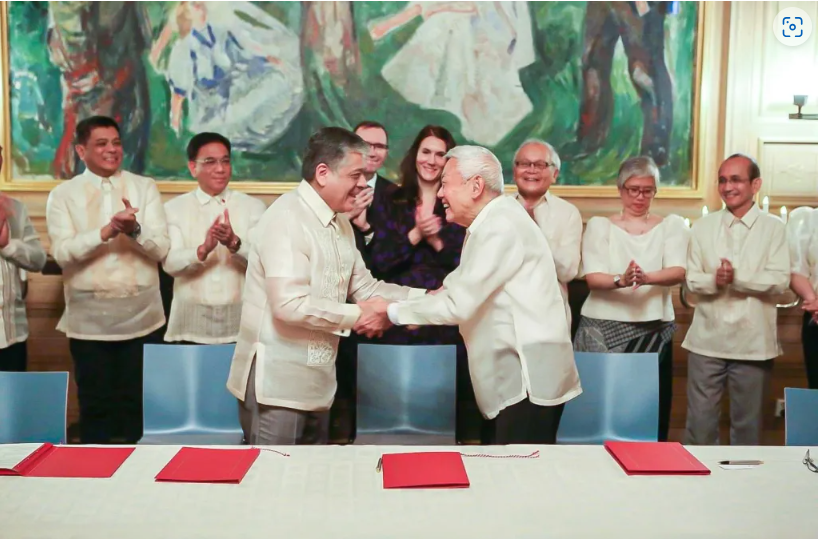
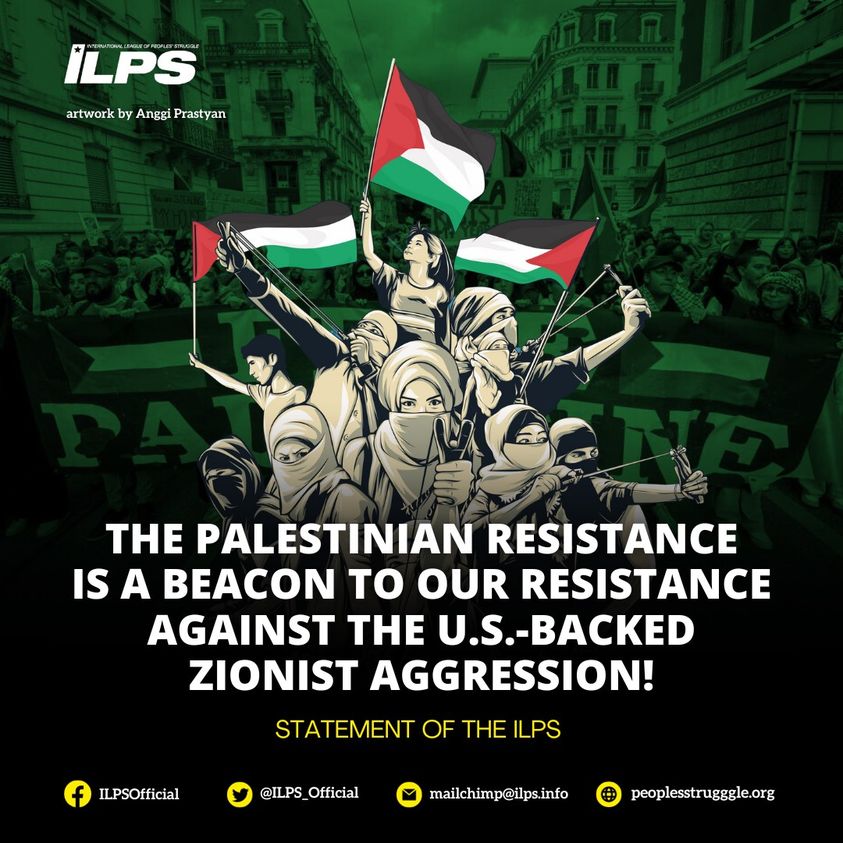
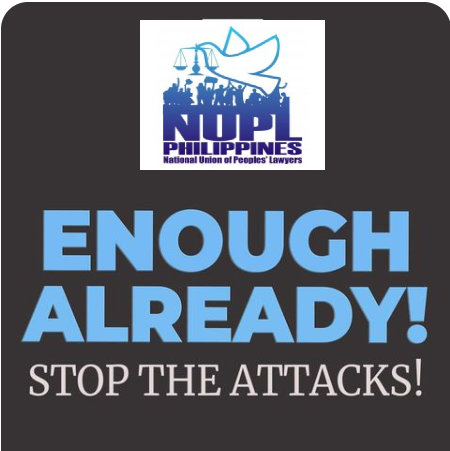
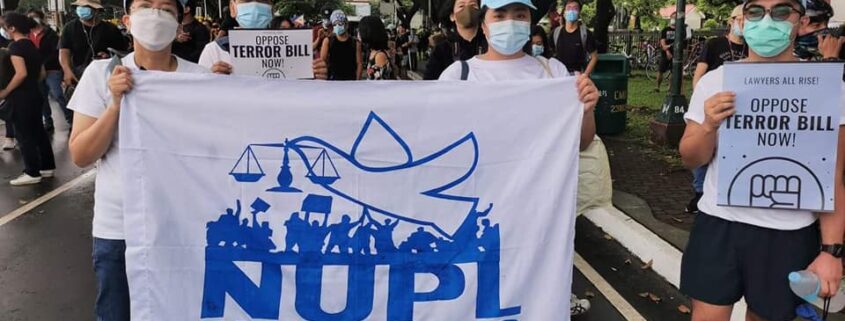
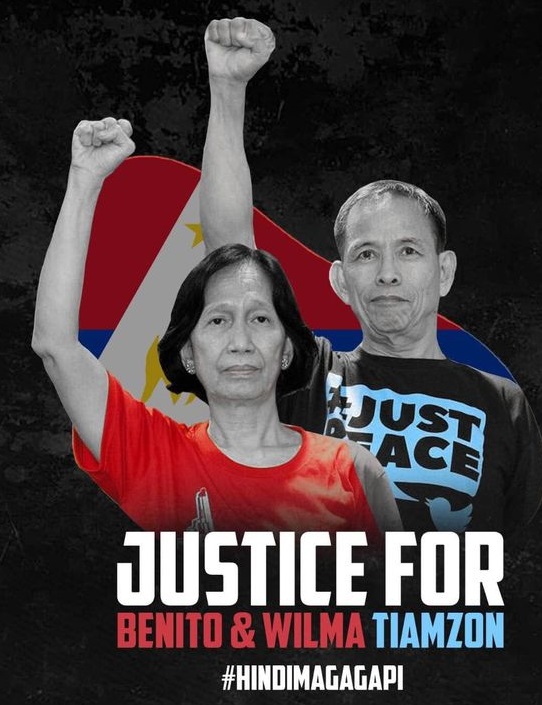

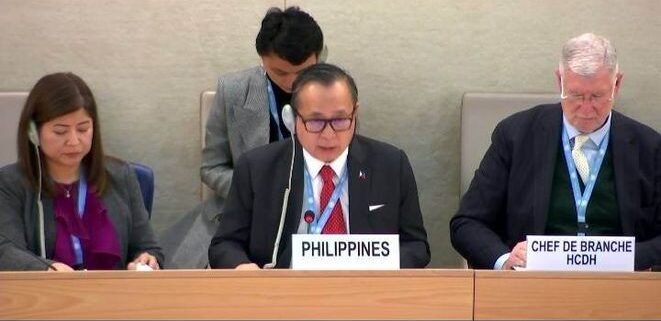
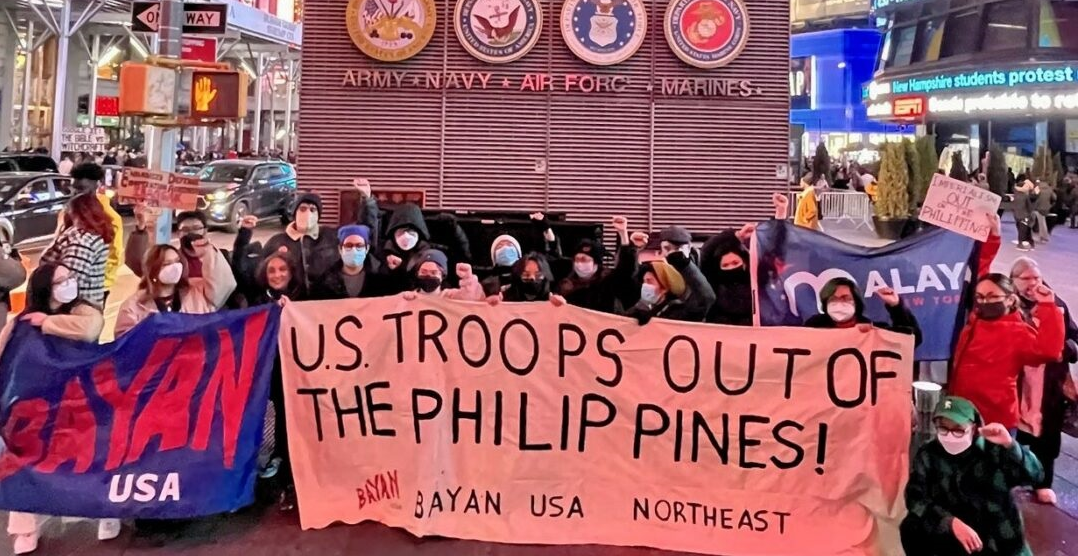

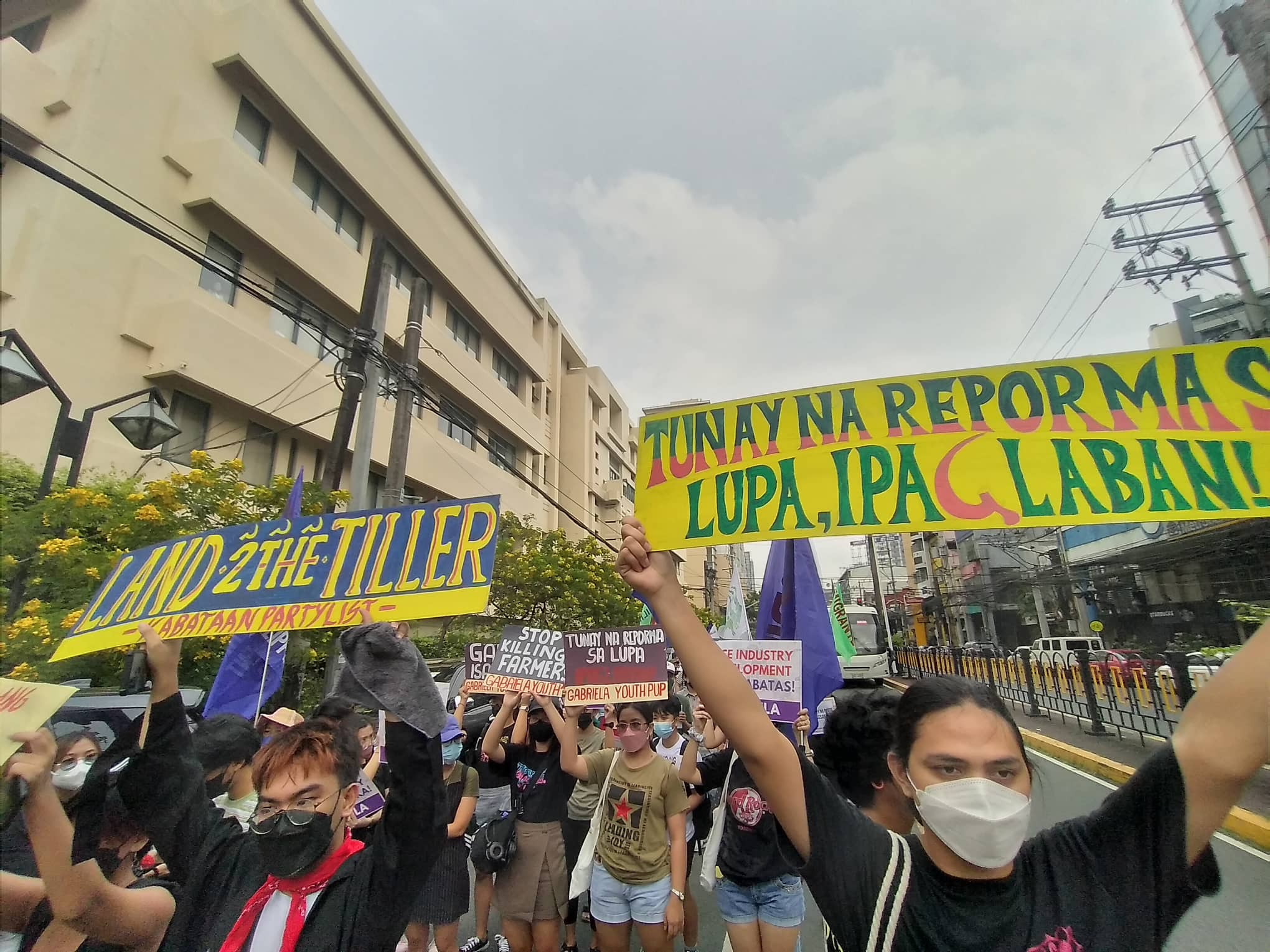

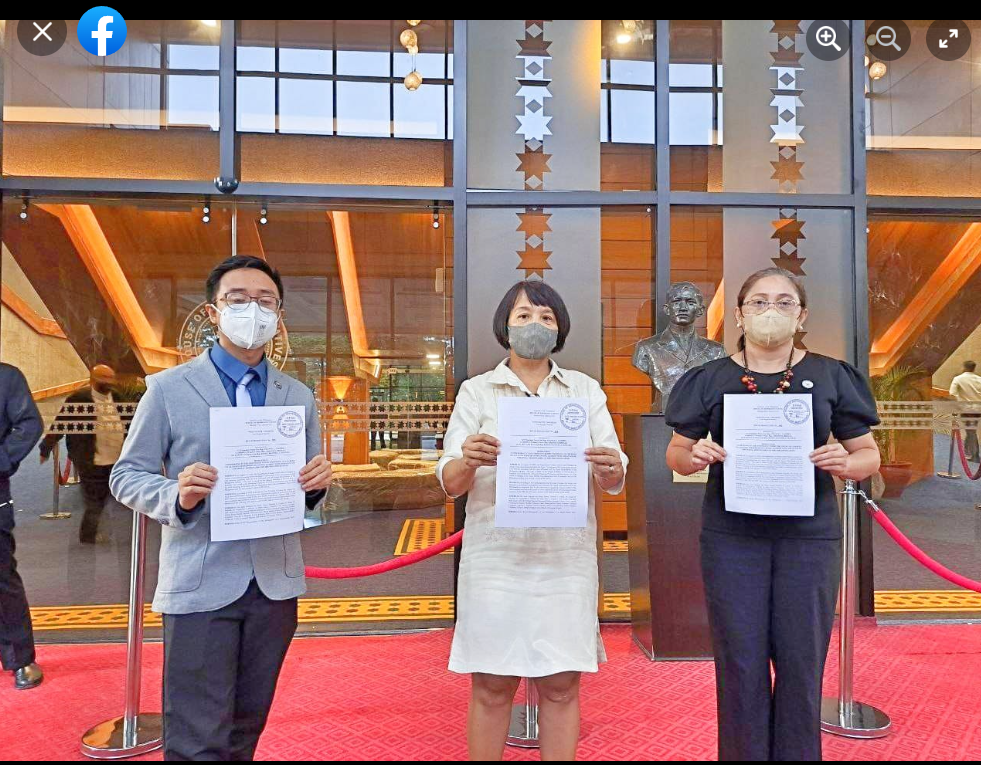
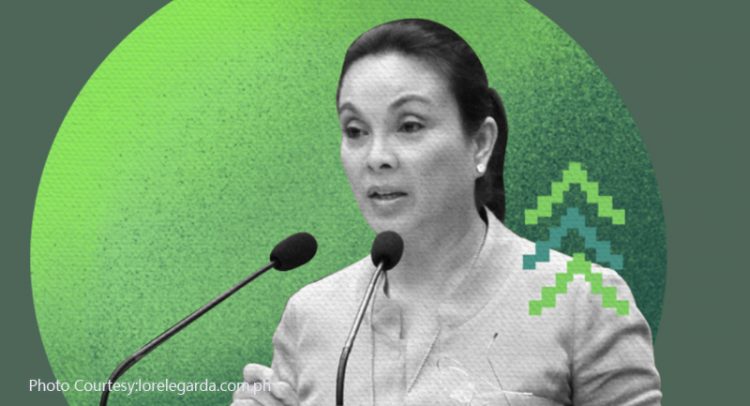
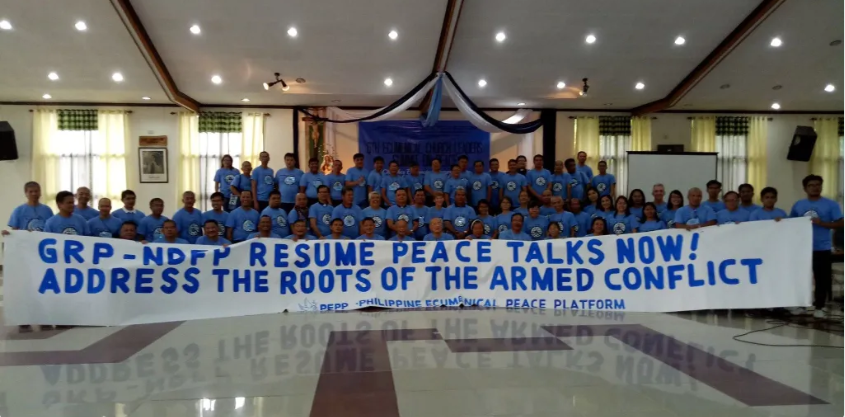
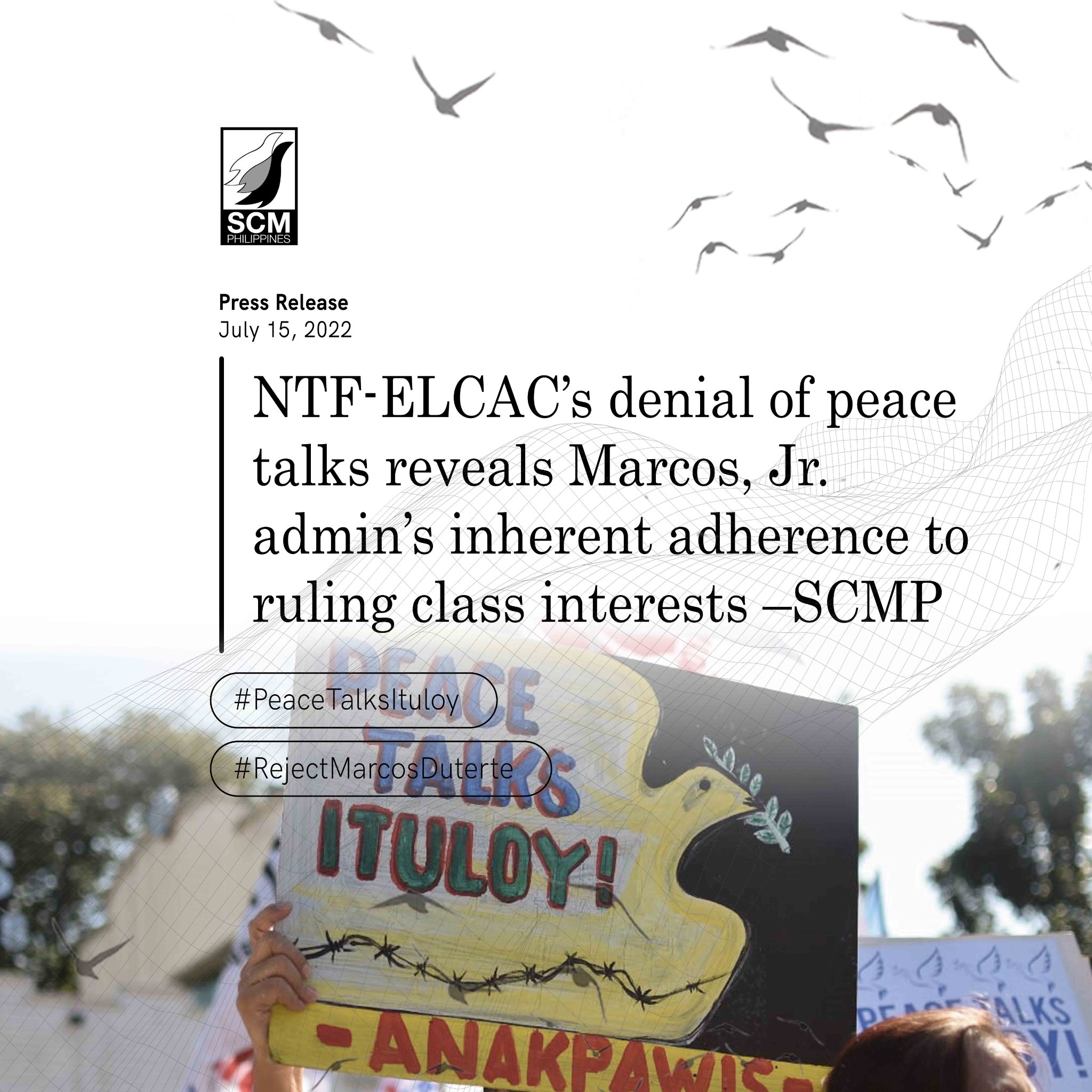
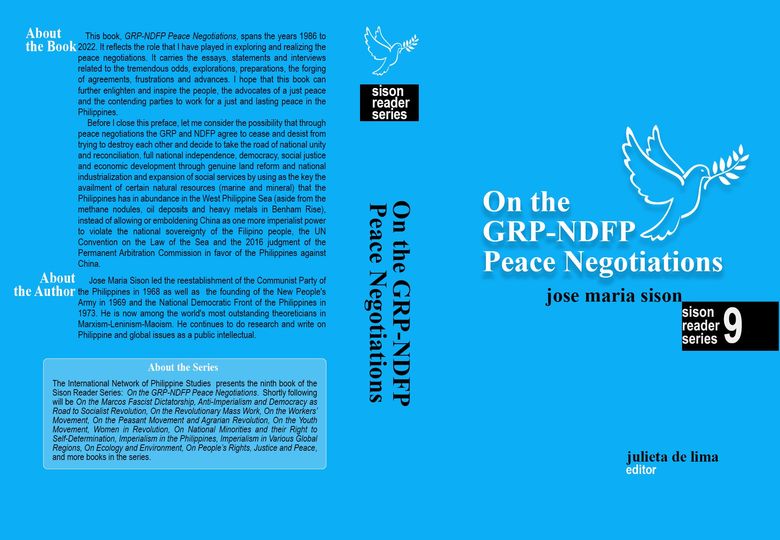
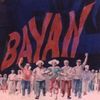
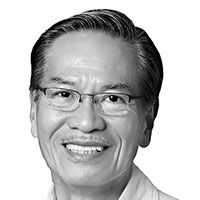
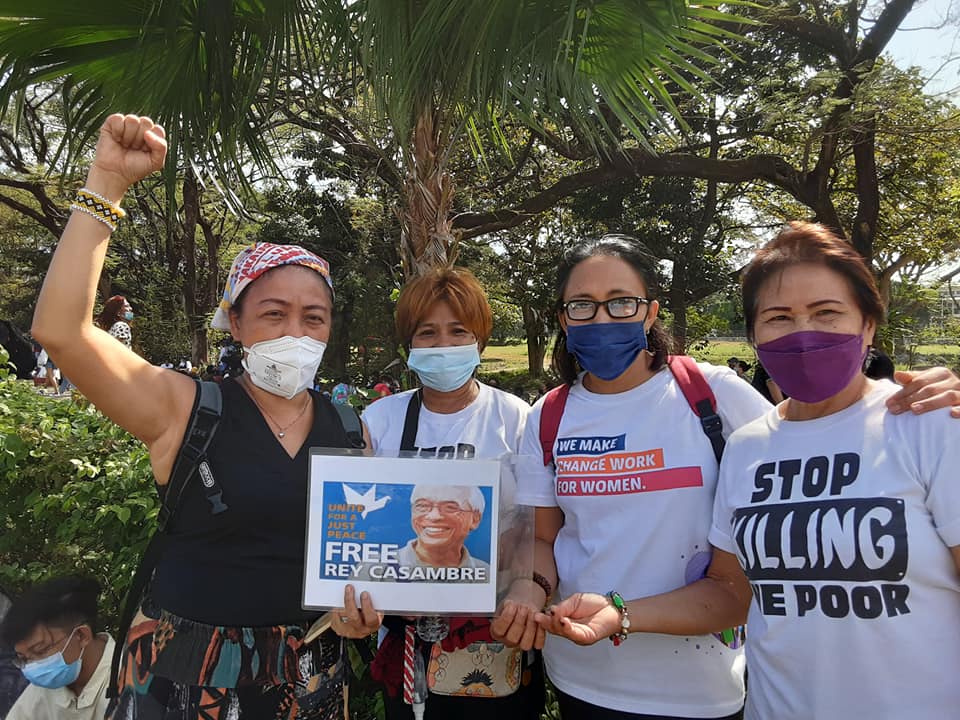
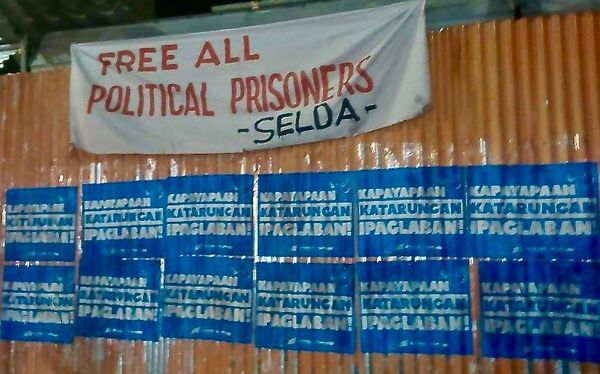
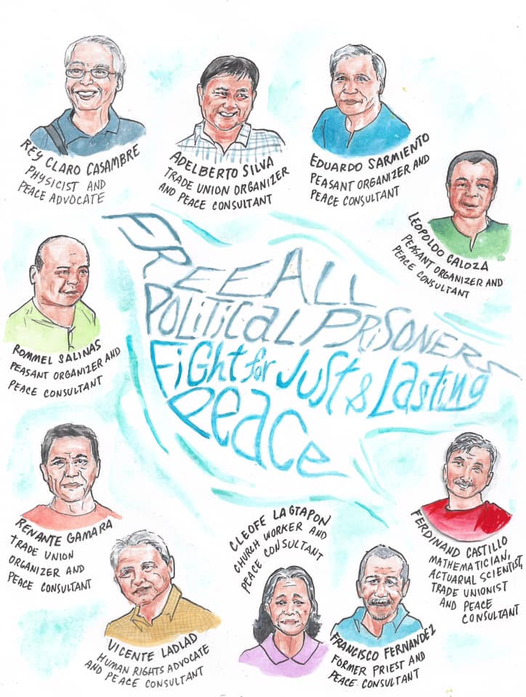
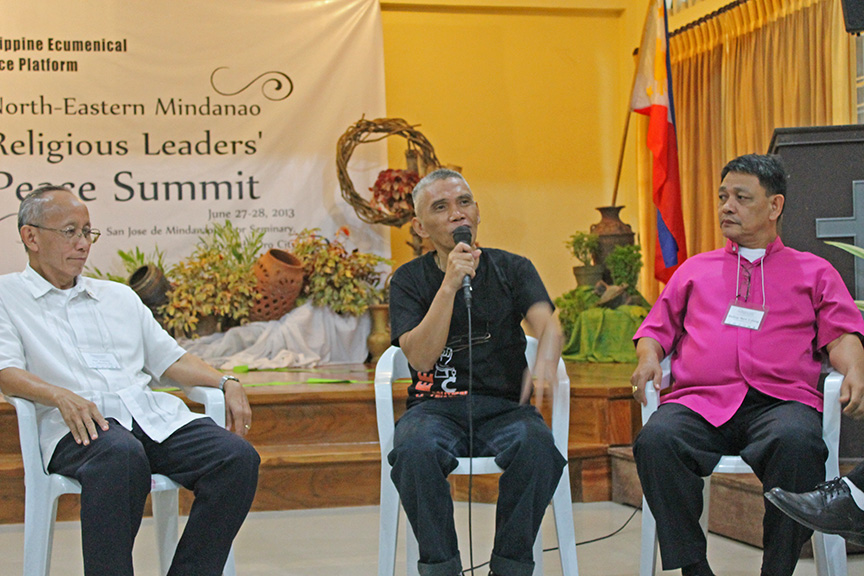


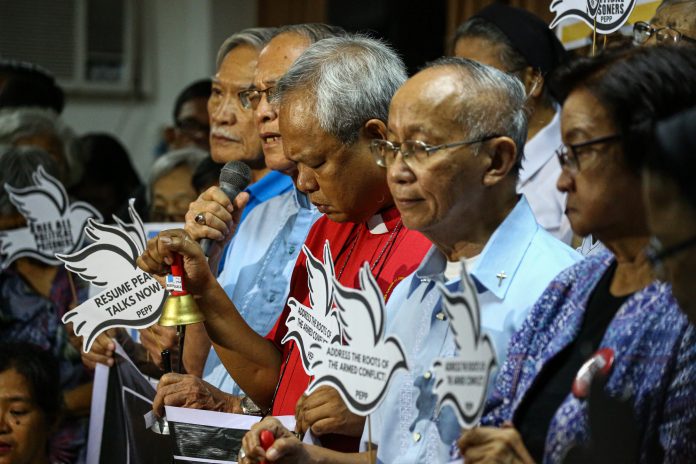

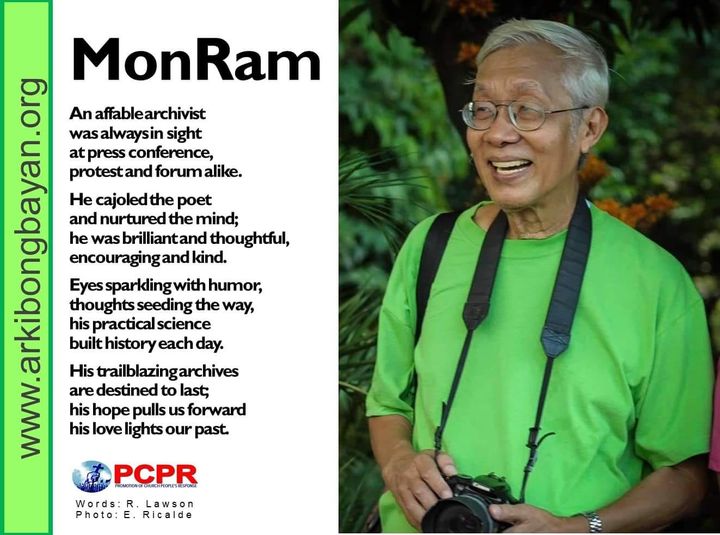
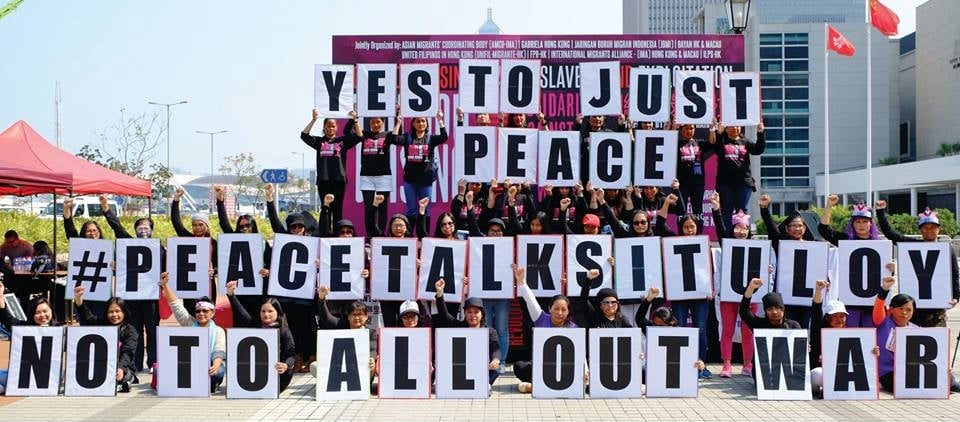


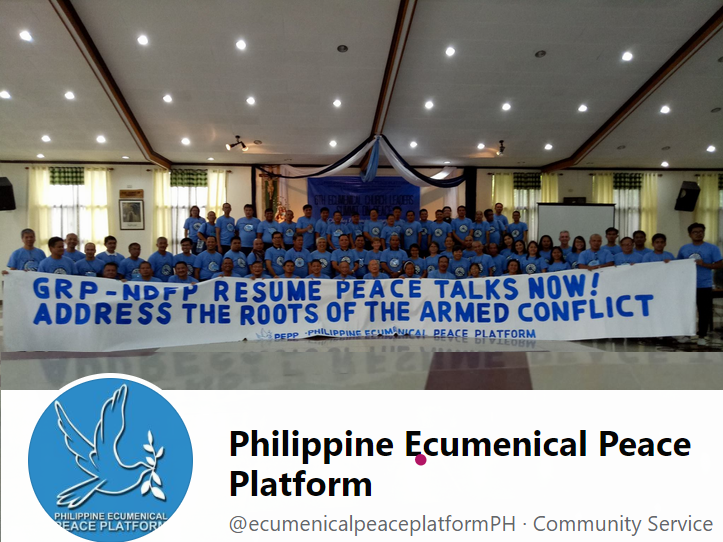
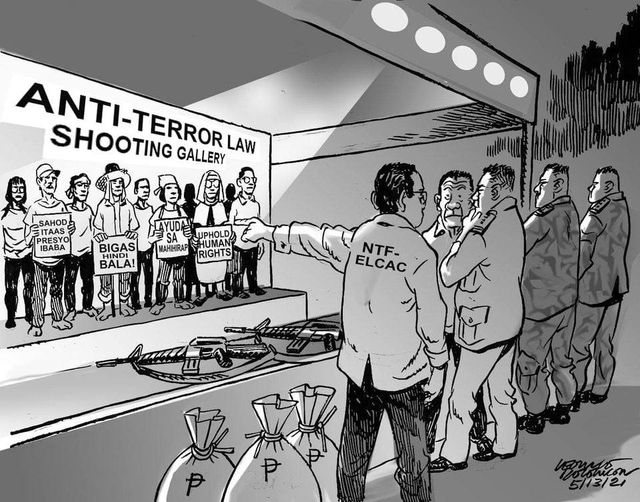





































































































 Bello: President Duterte will honor promise to free all political prisoners
Bello: President Duterte will honor promise to free all political prisoners









